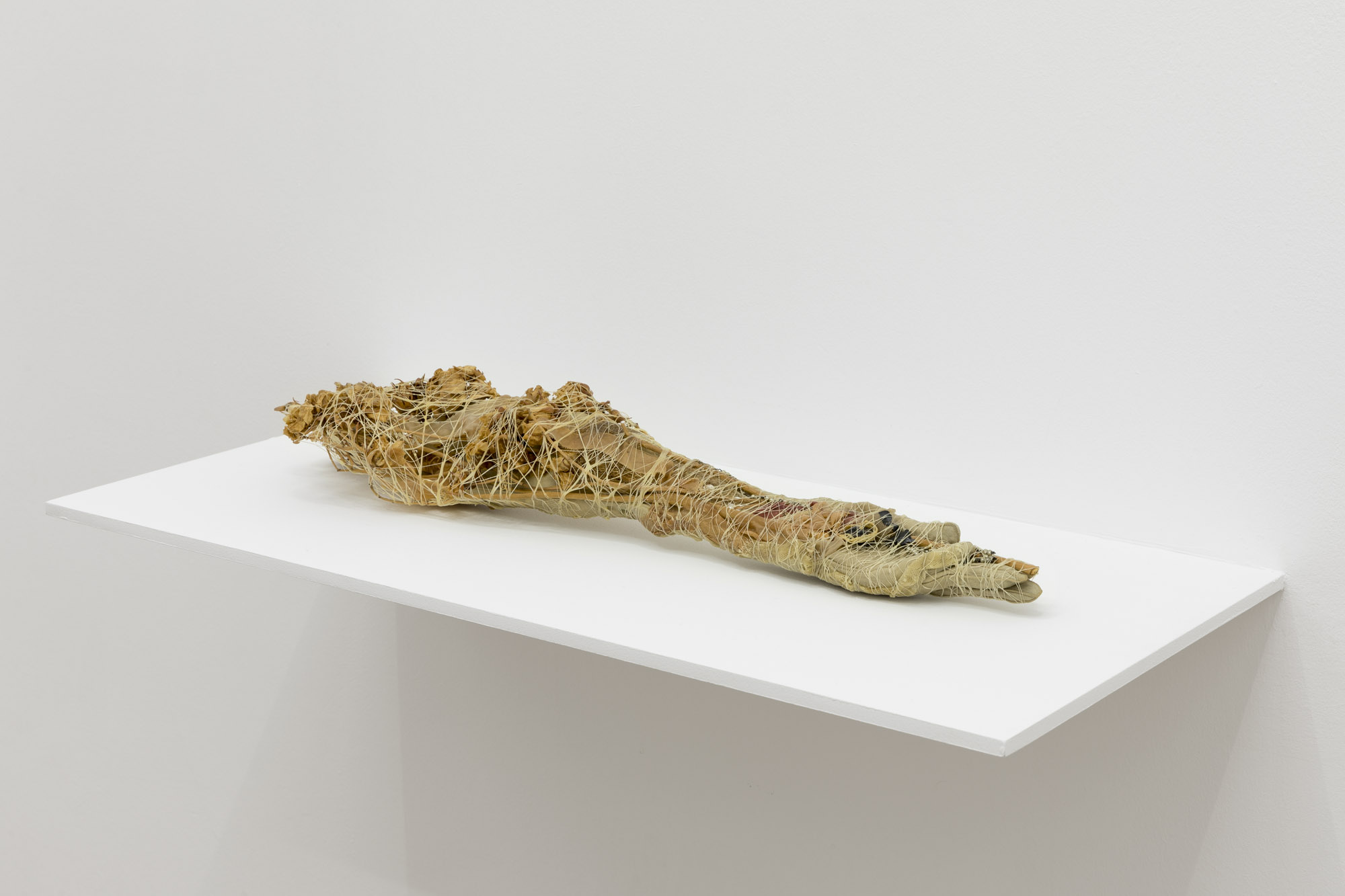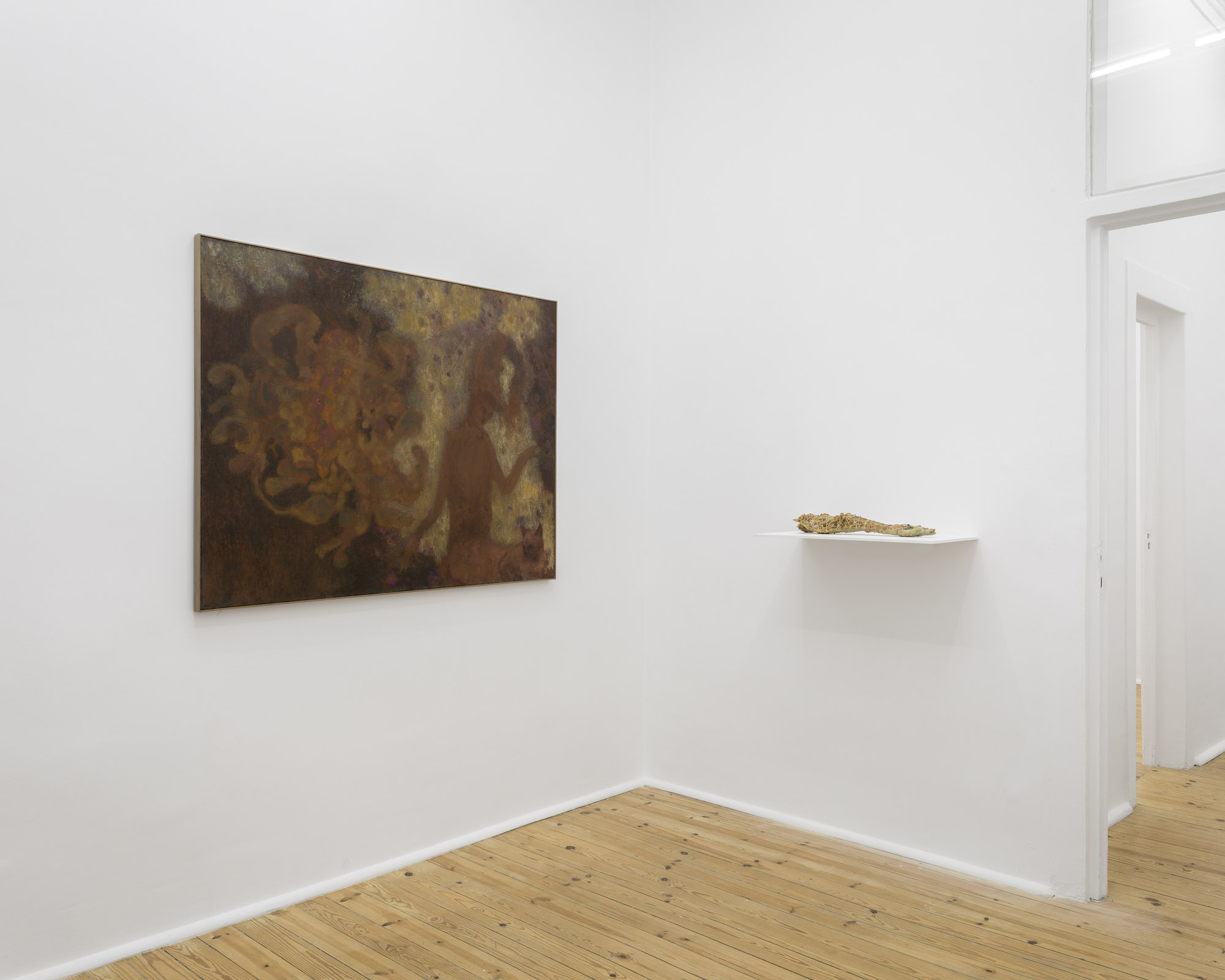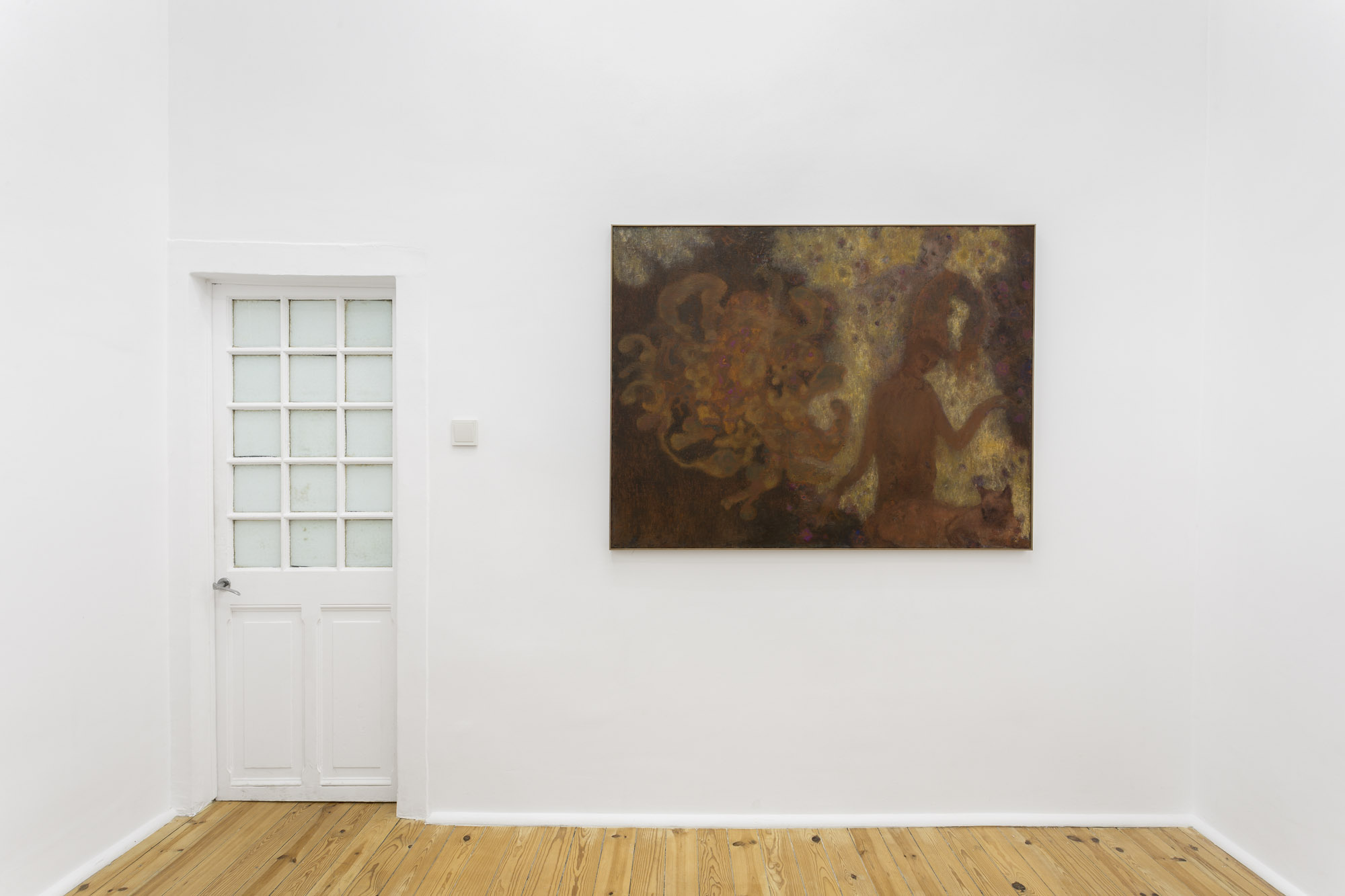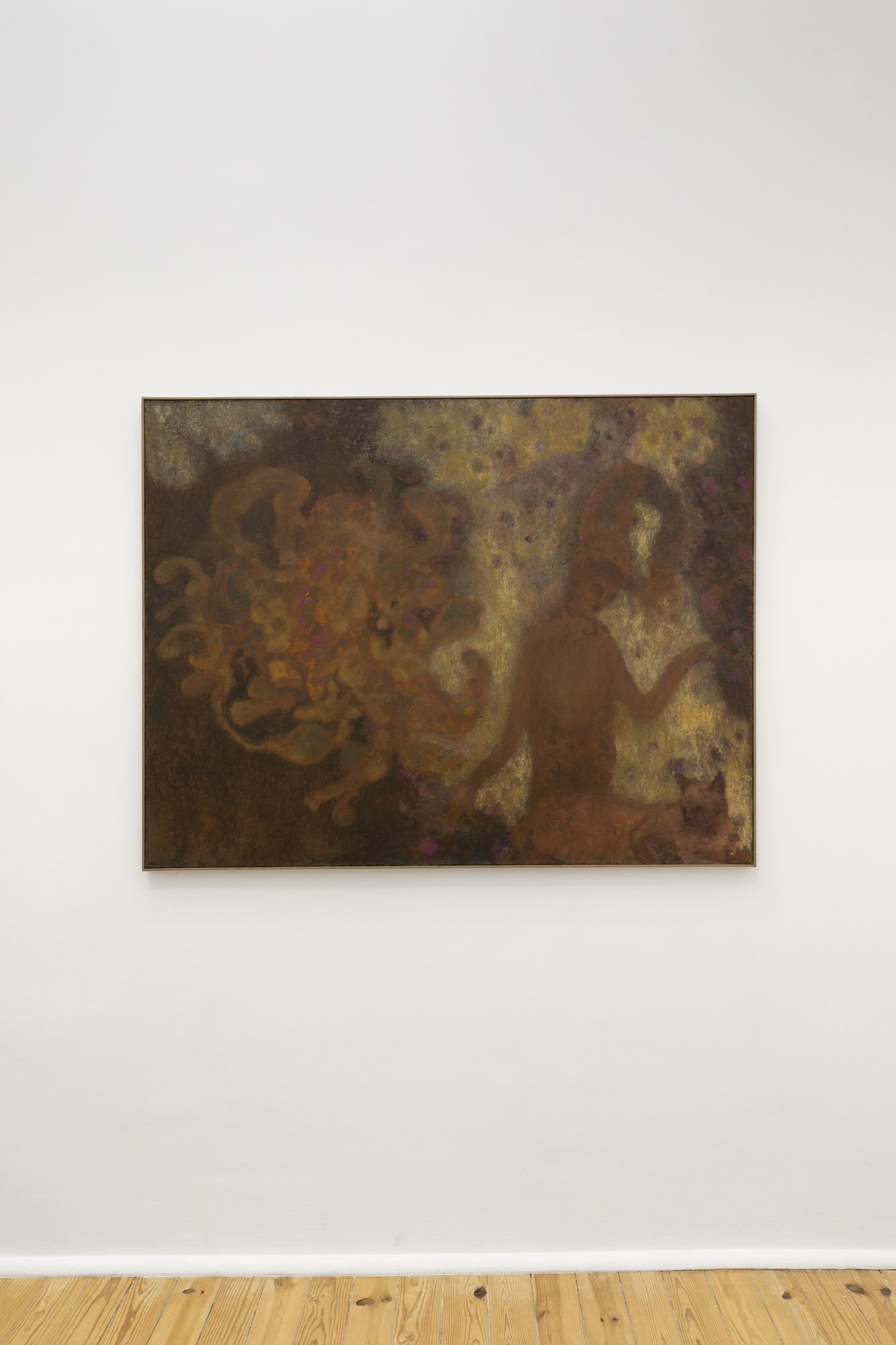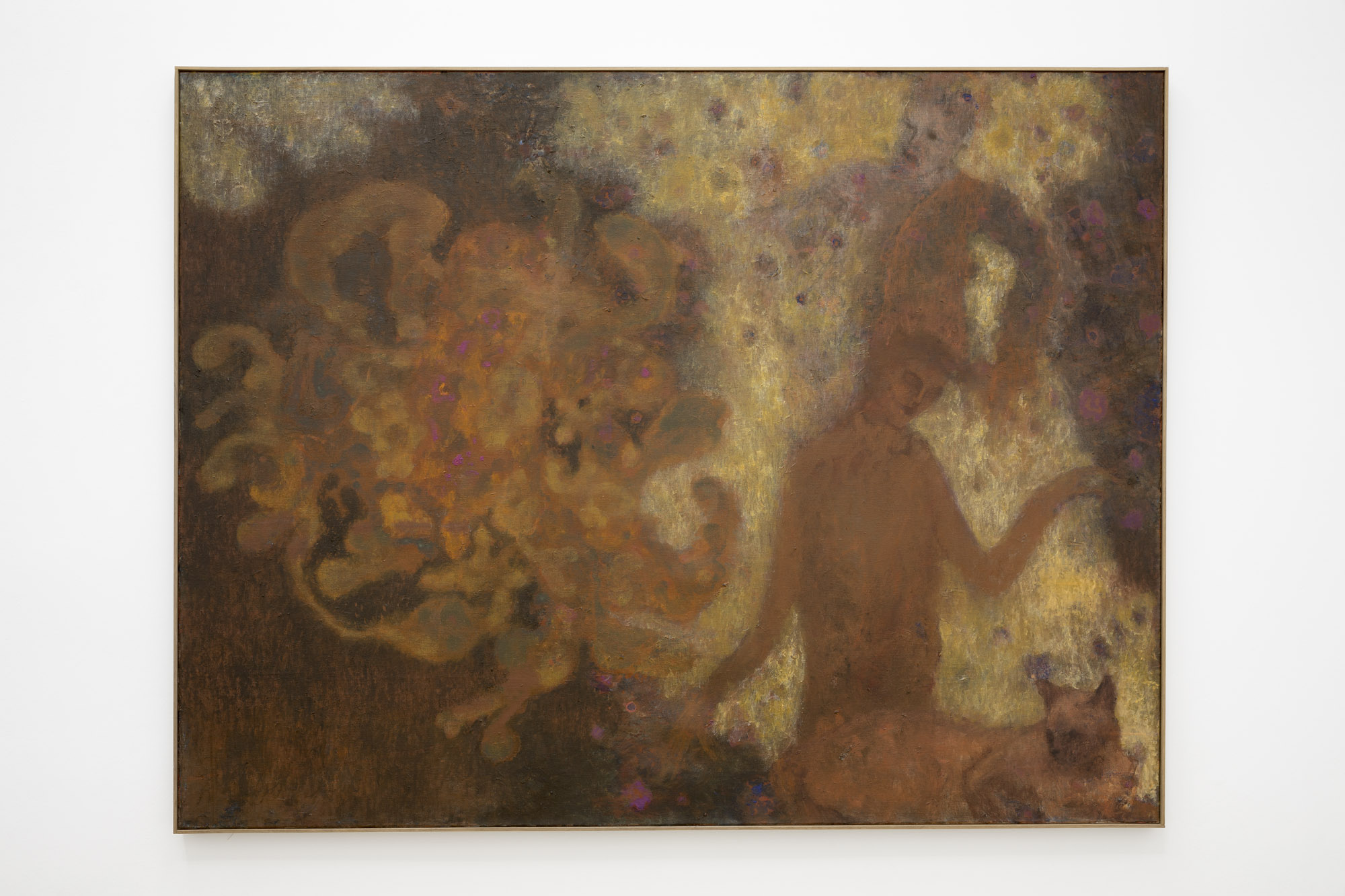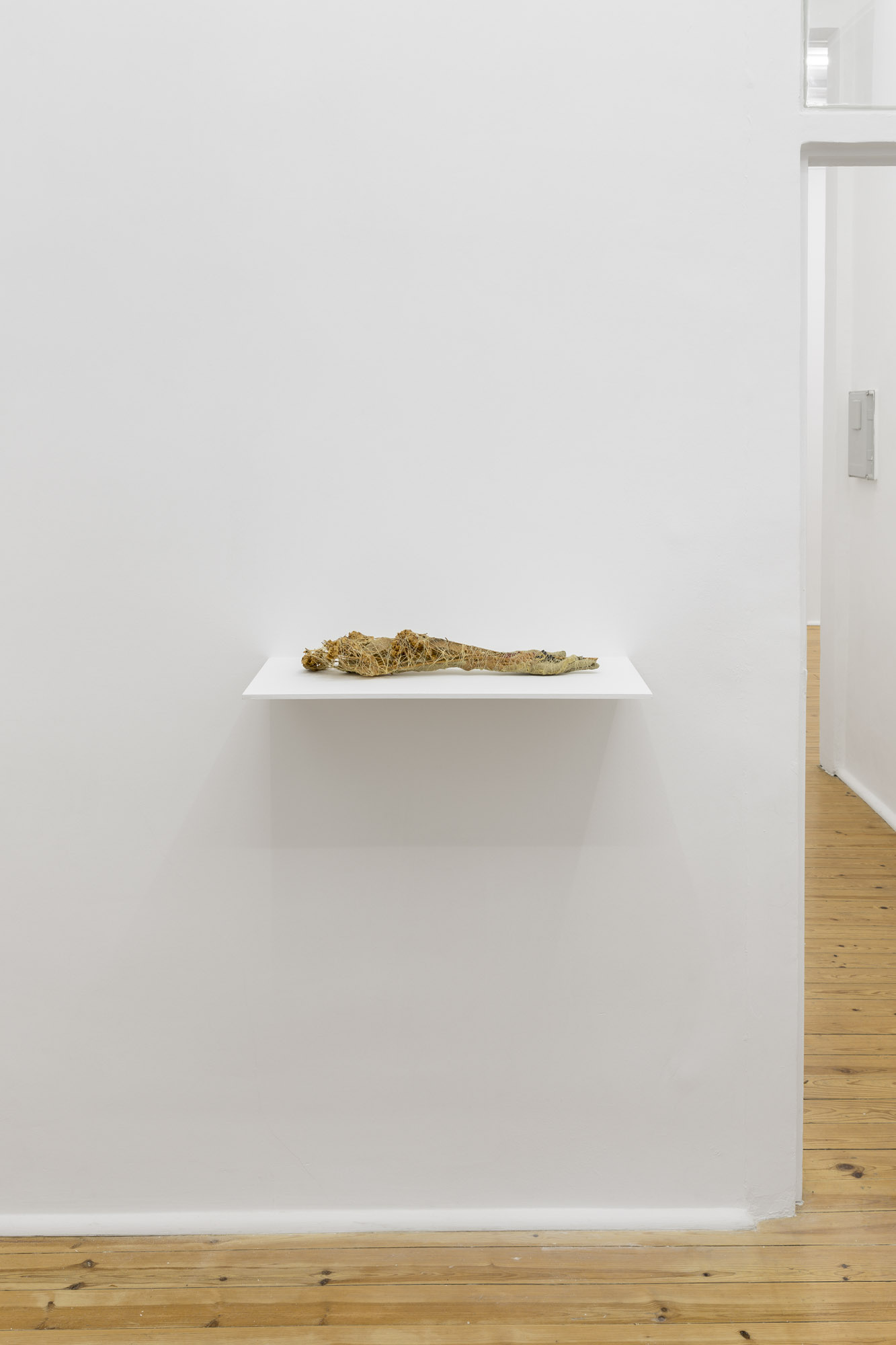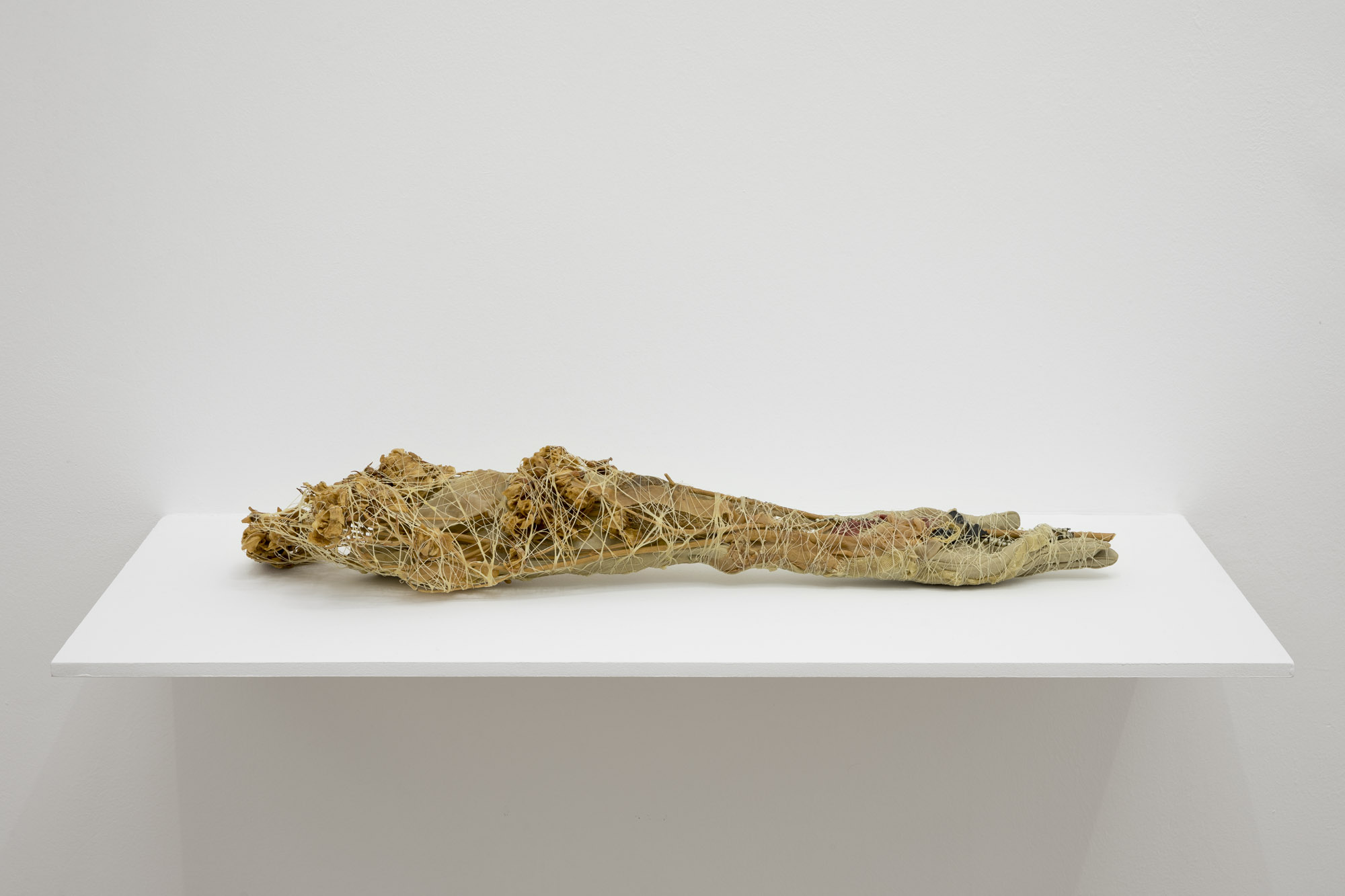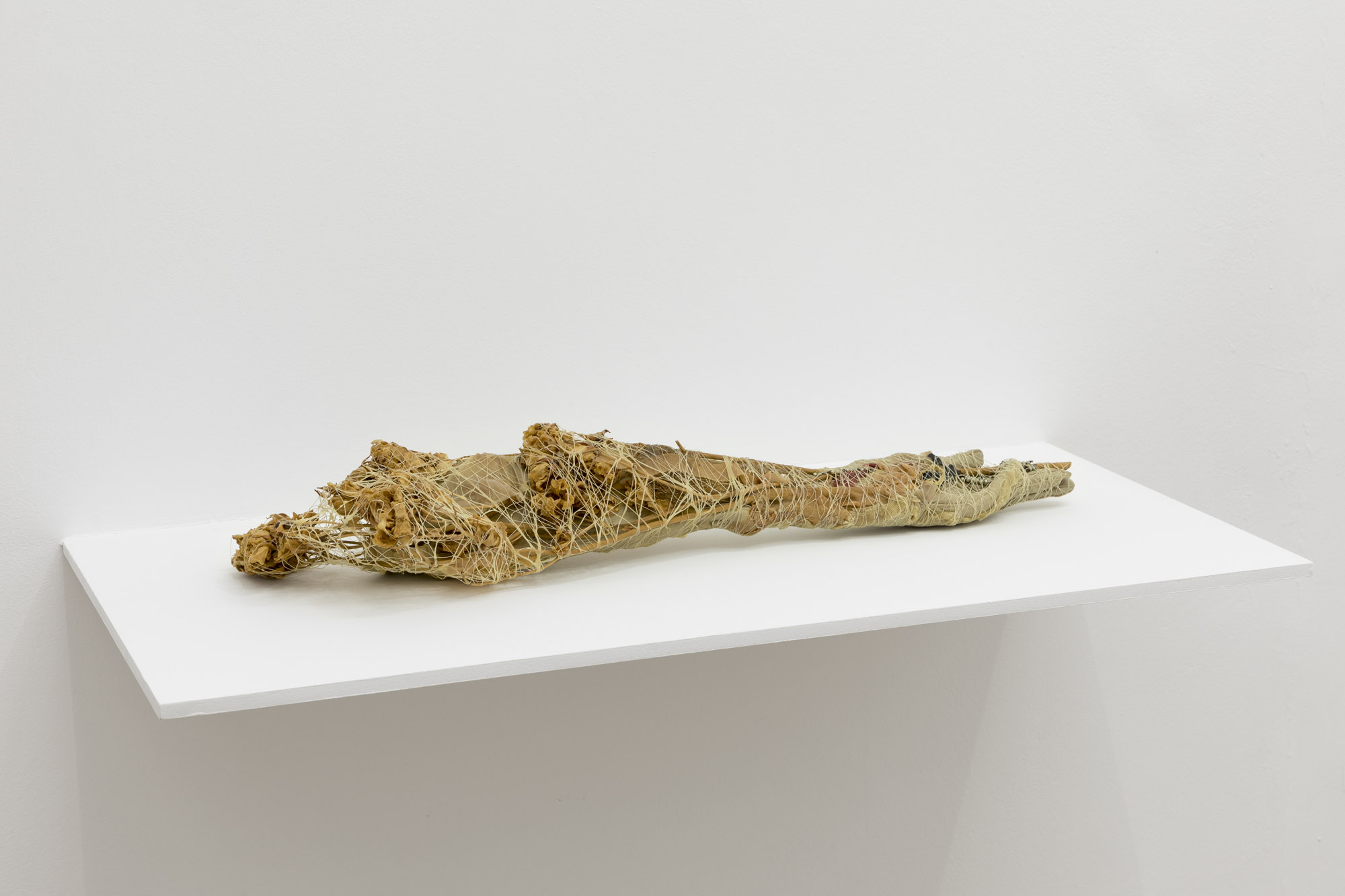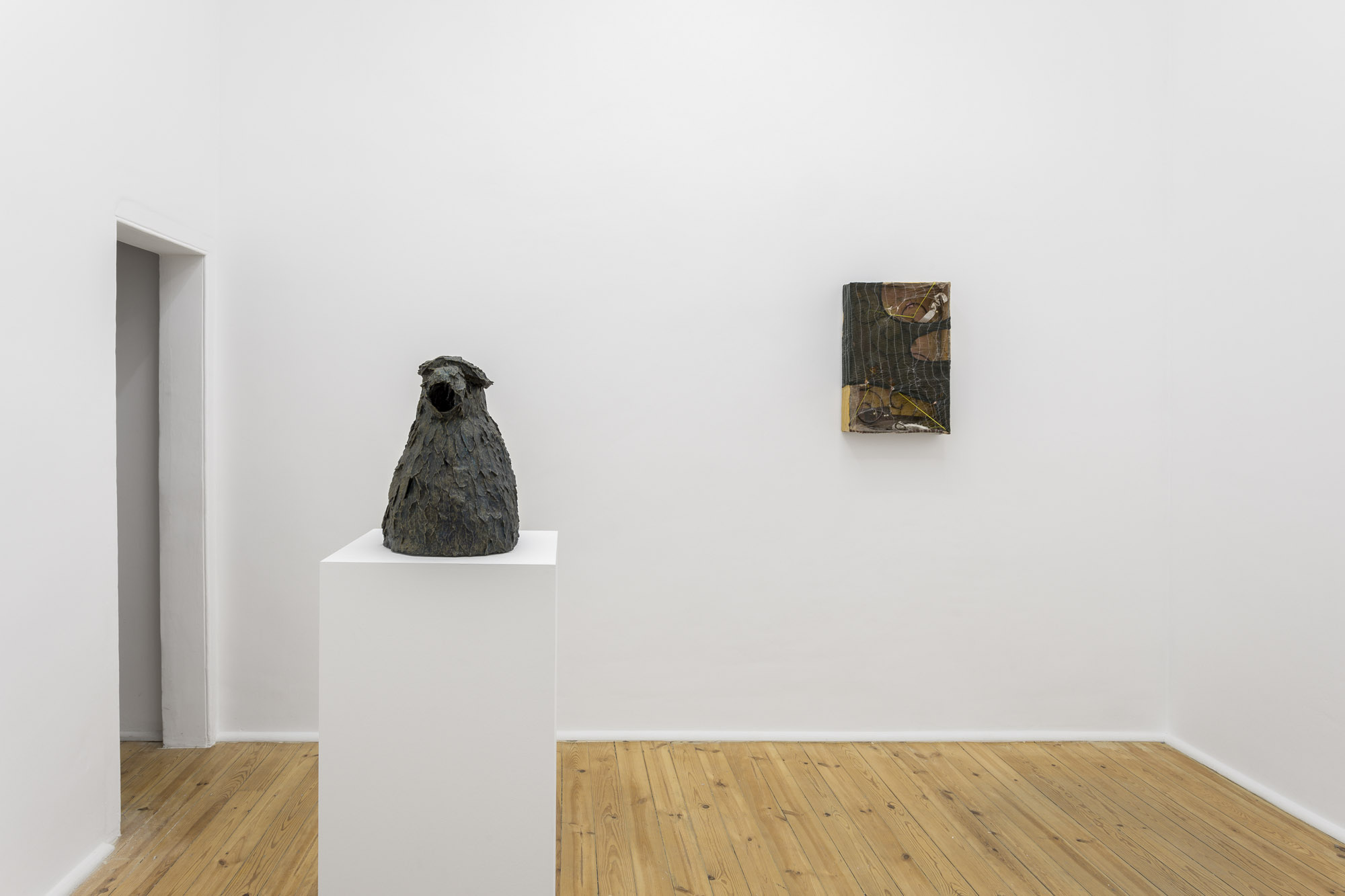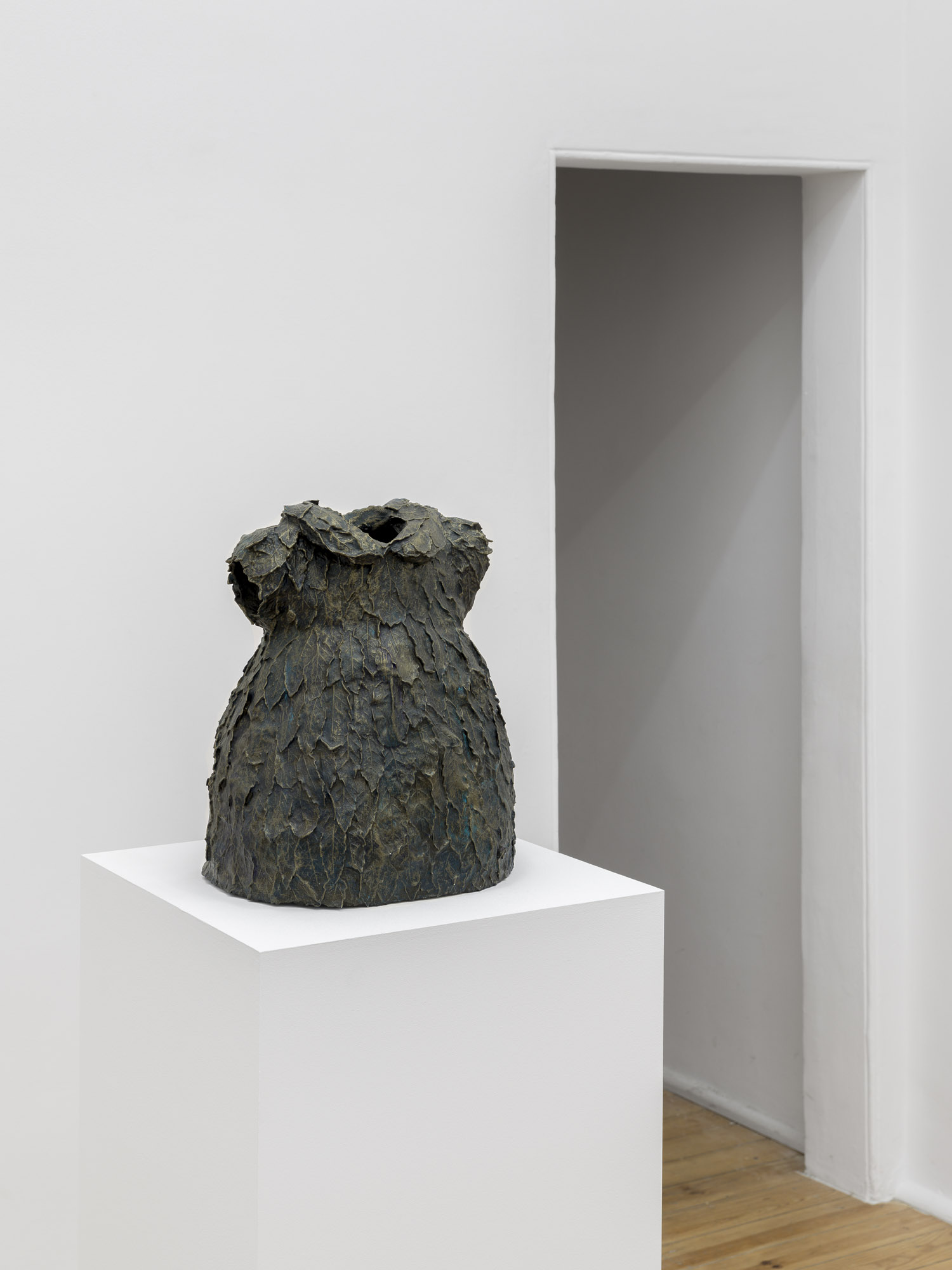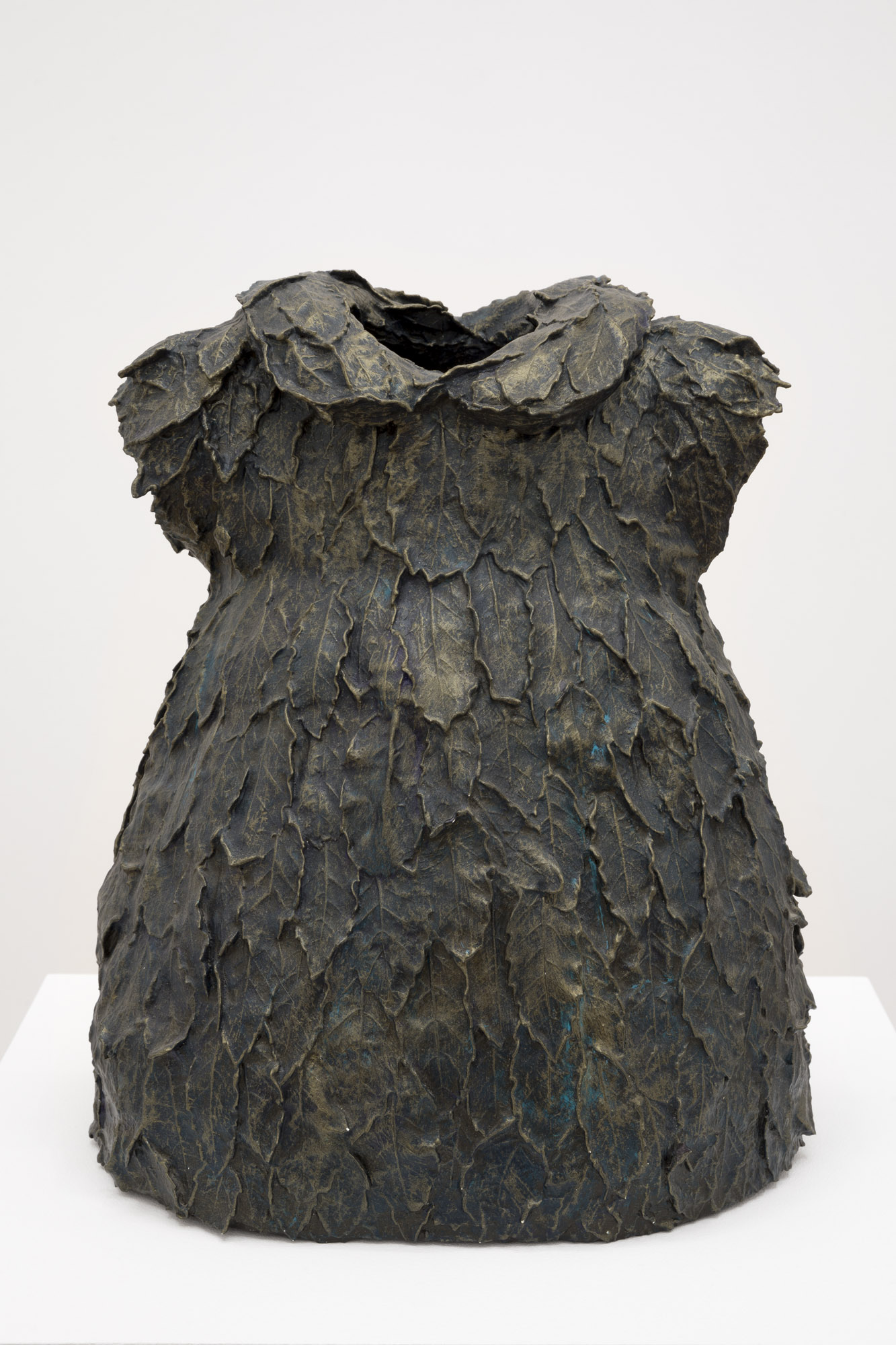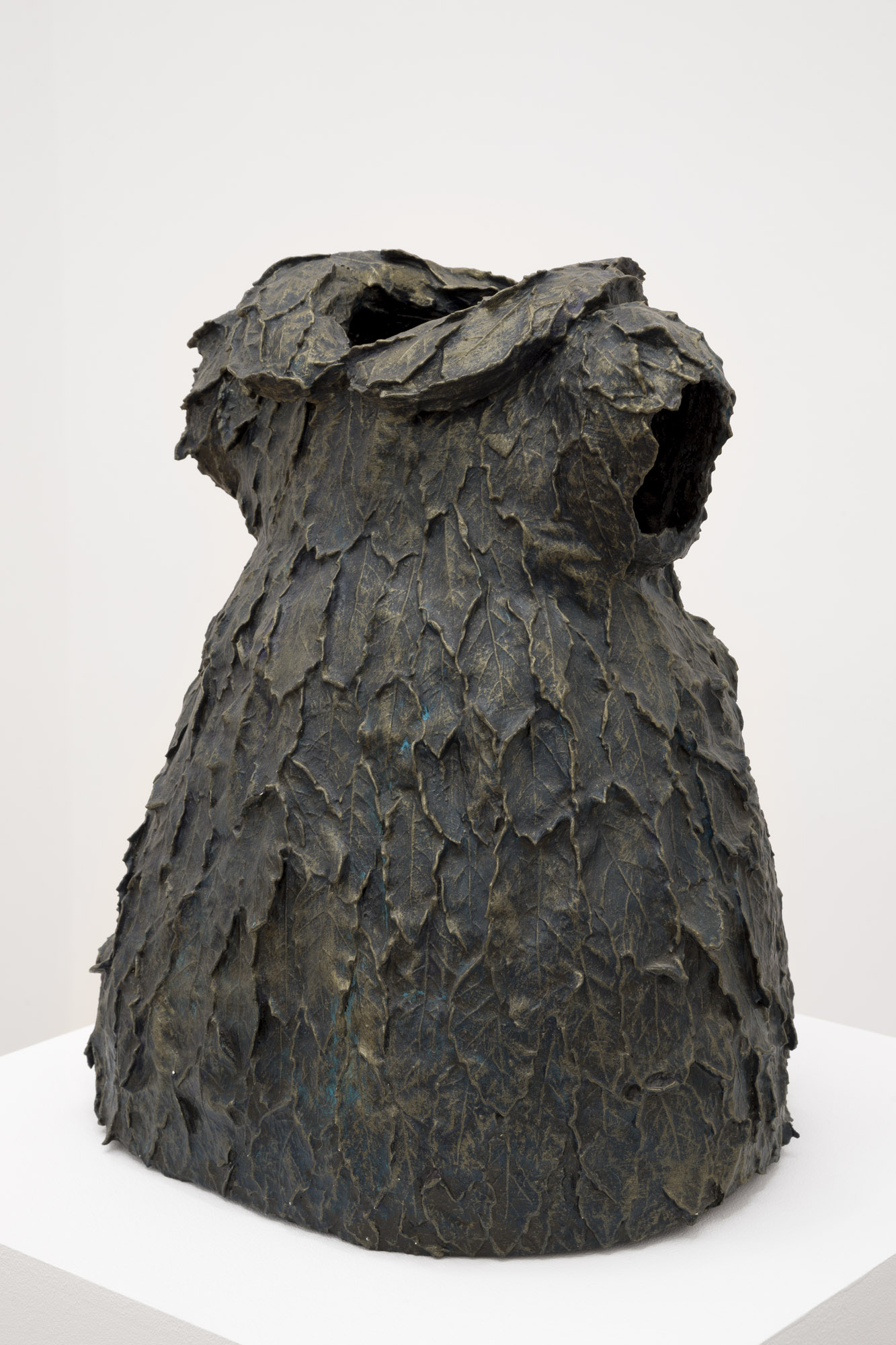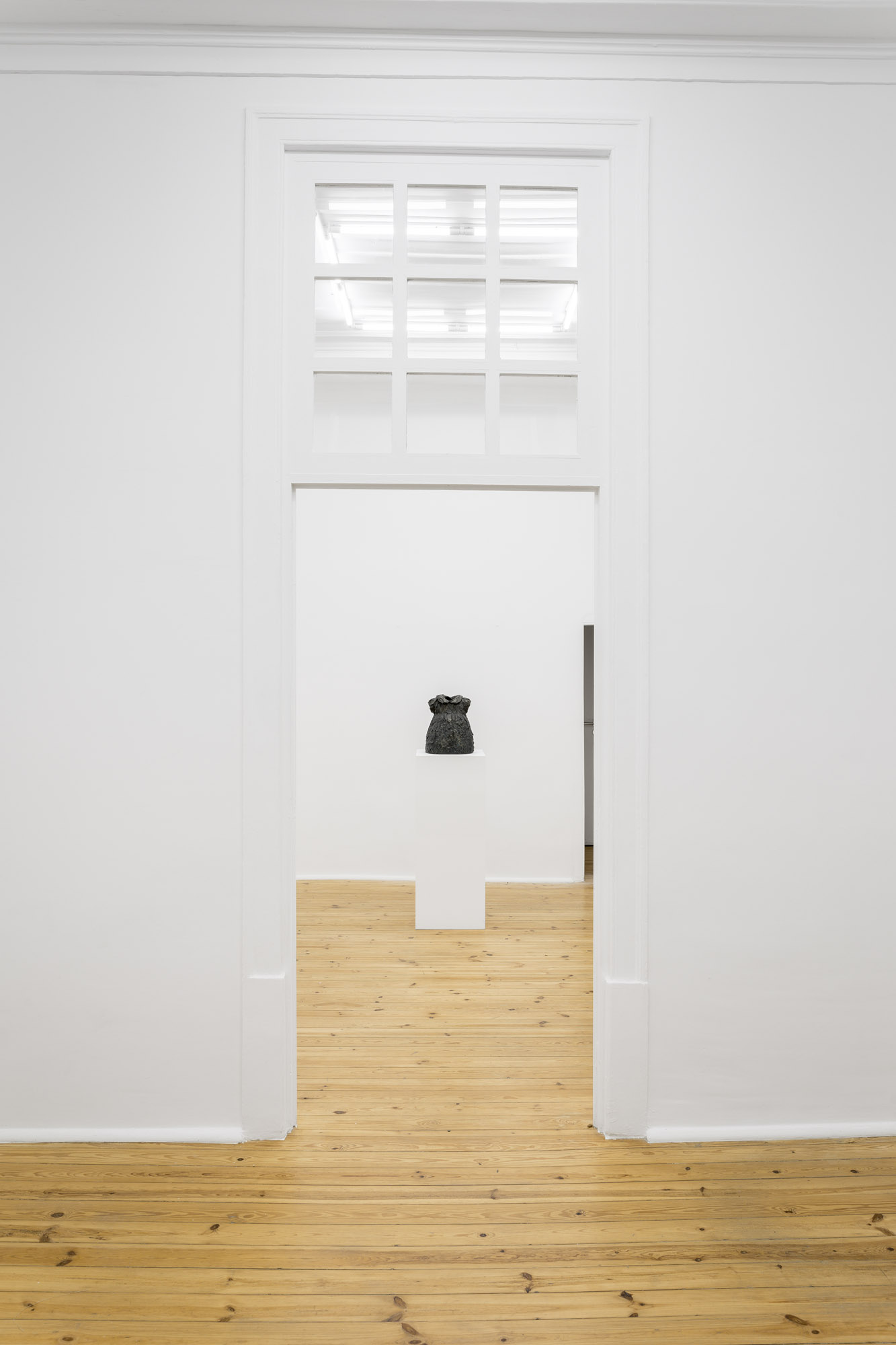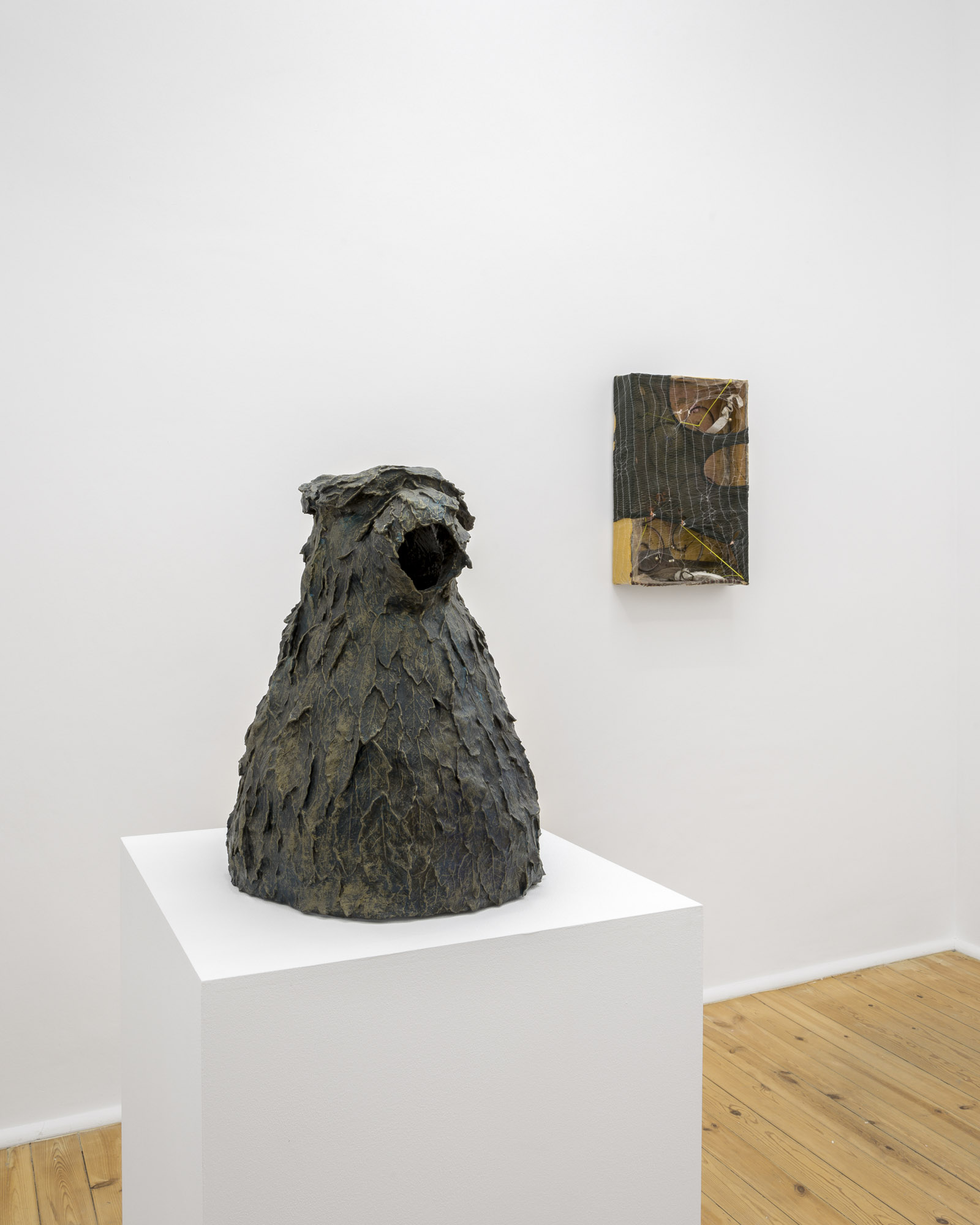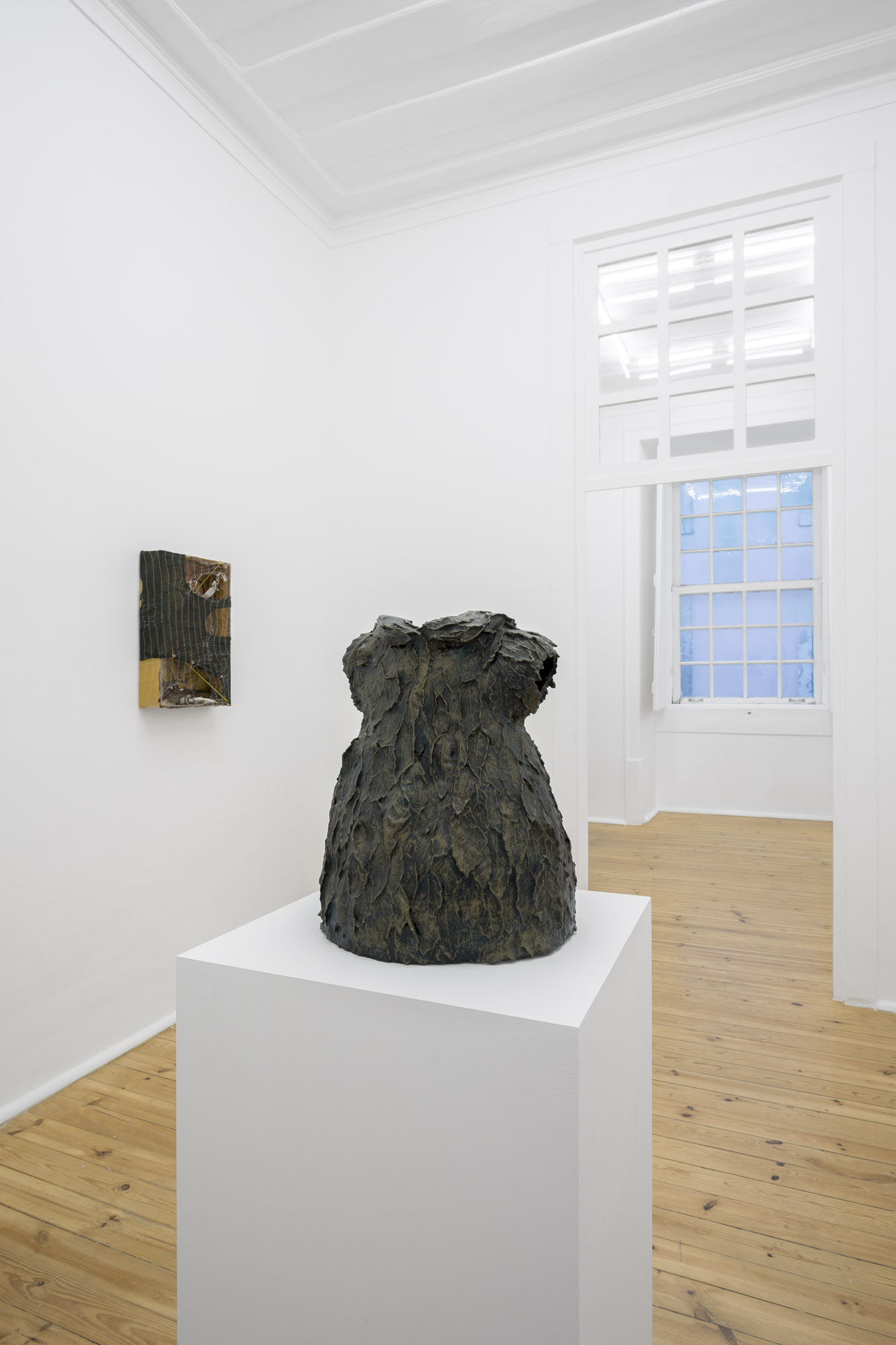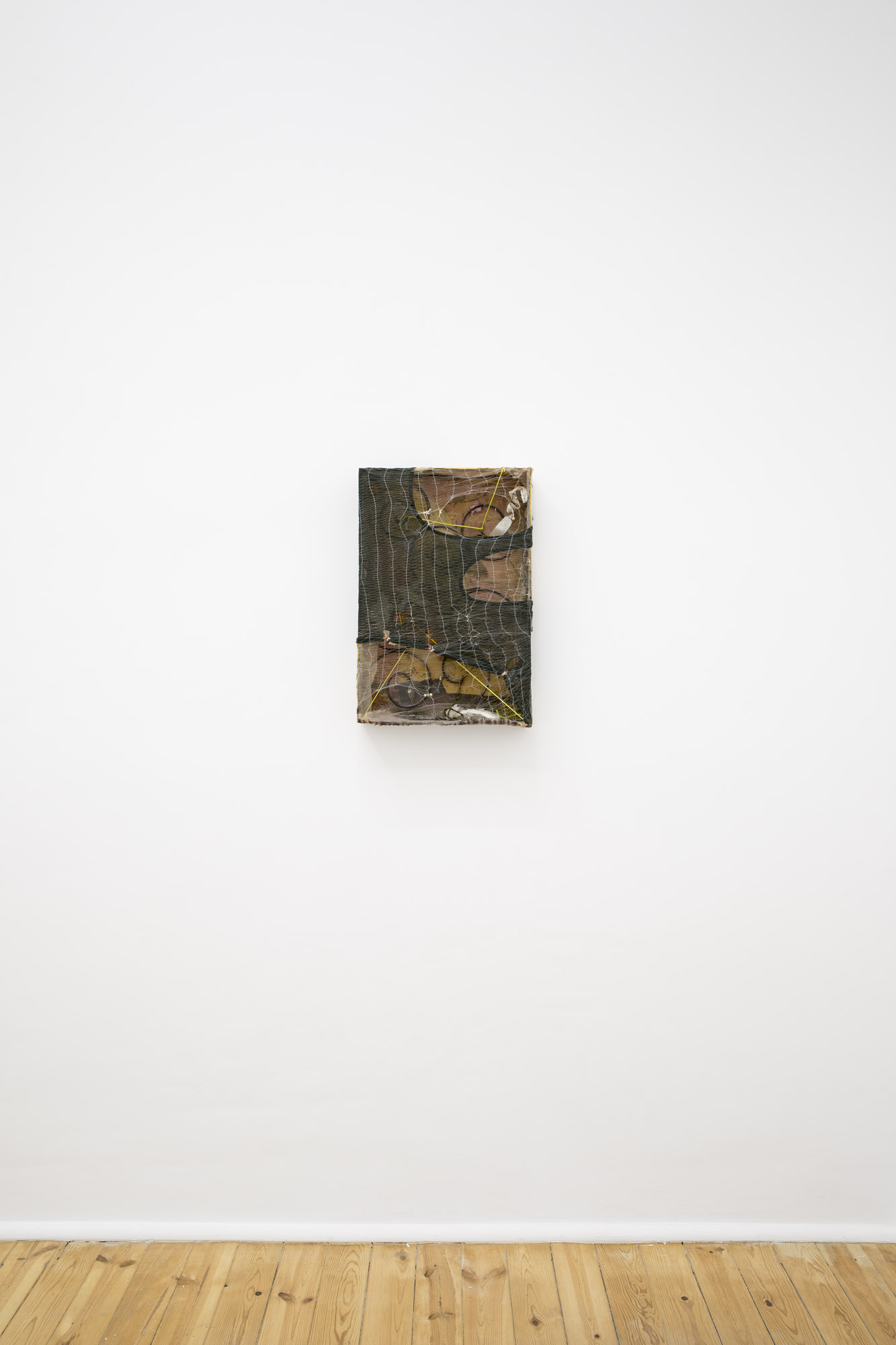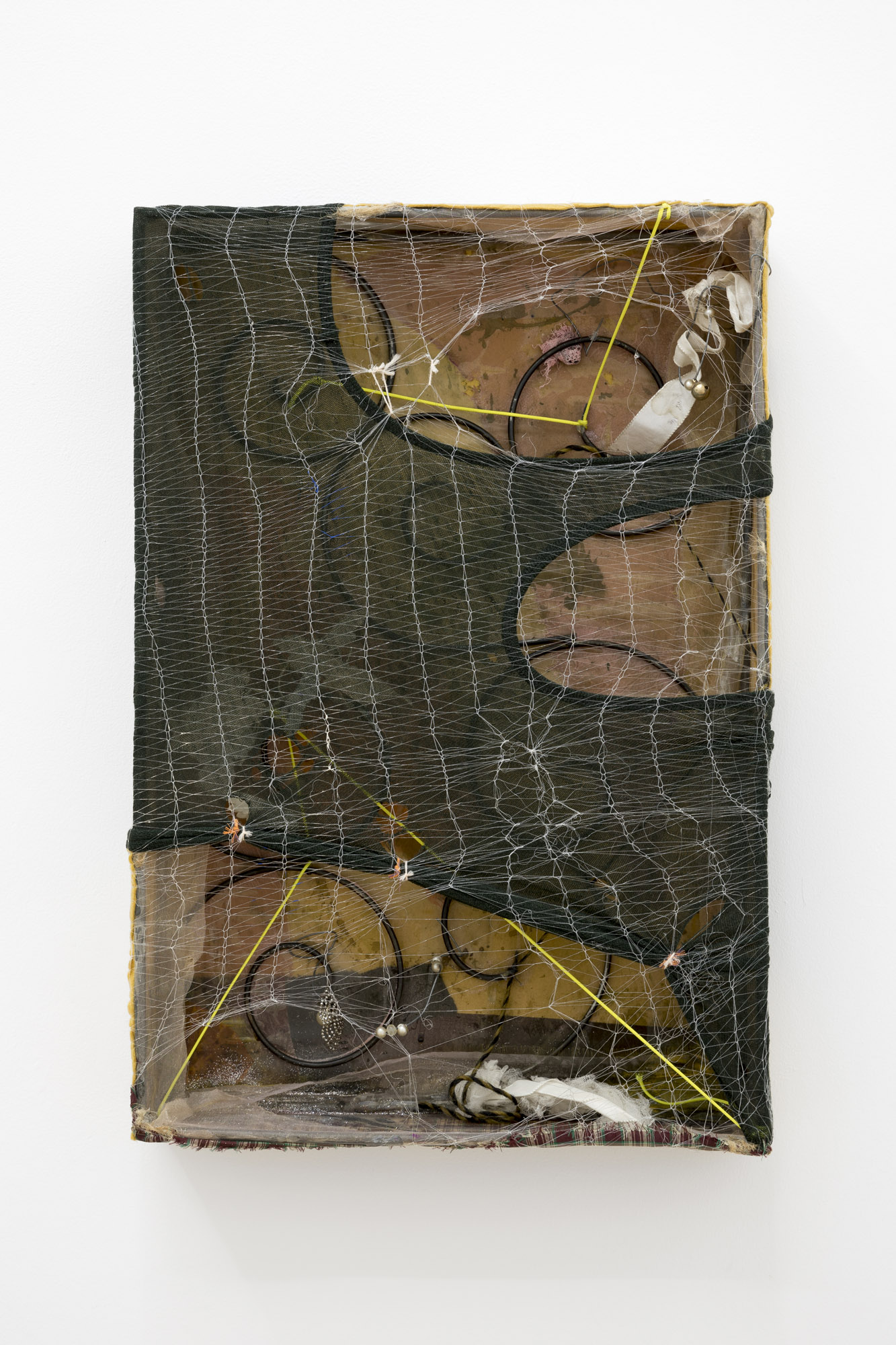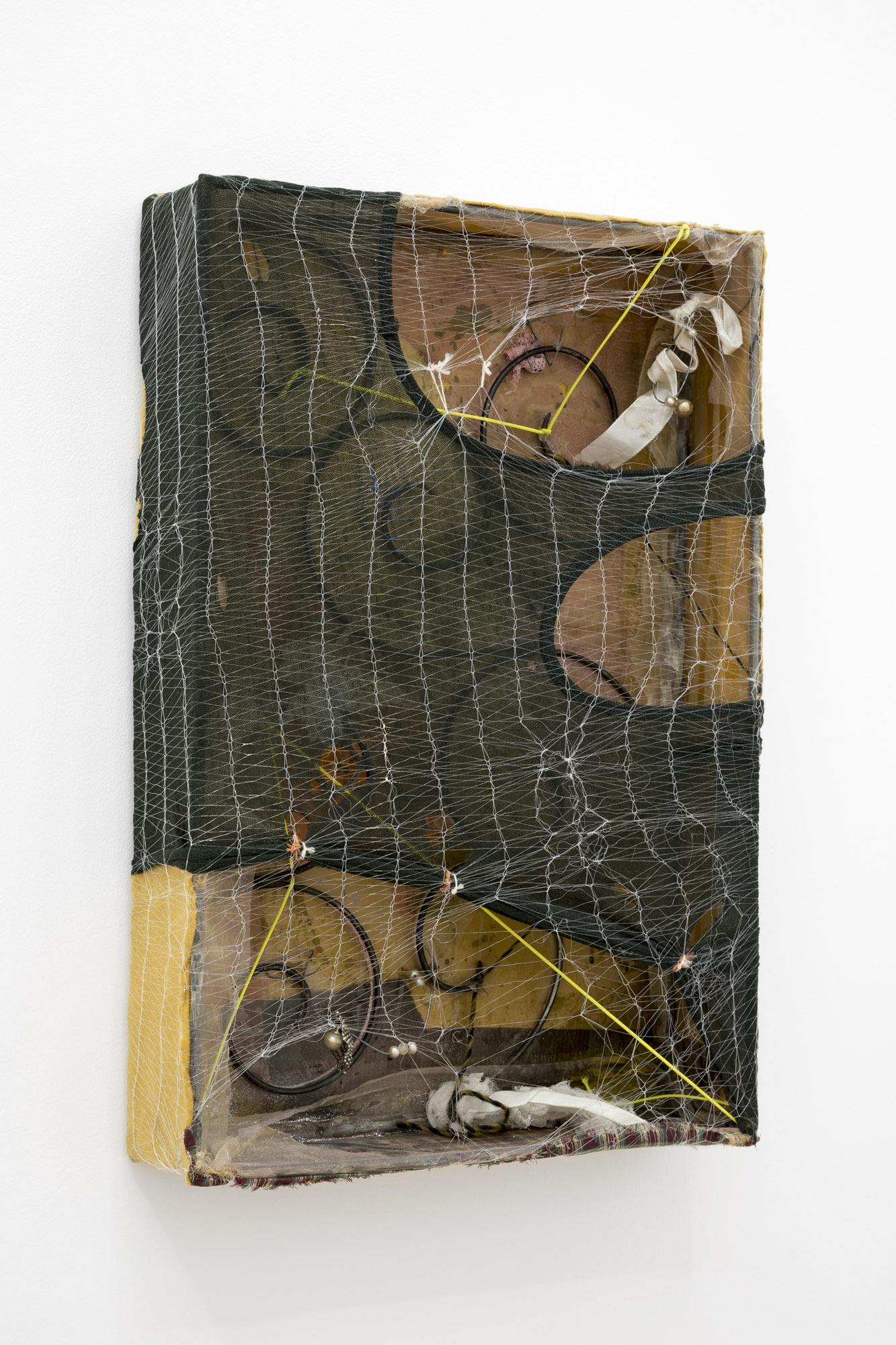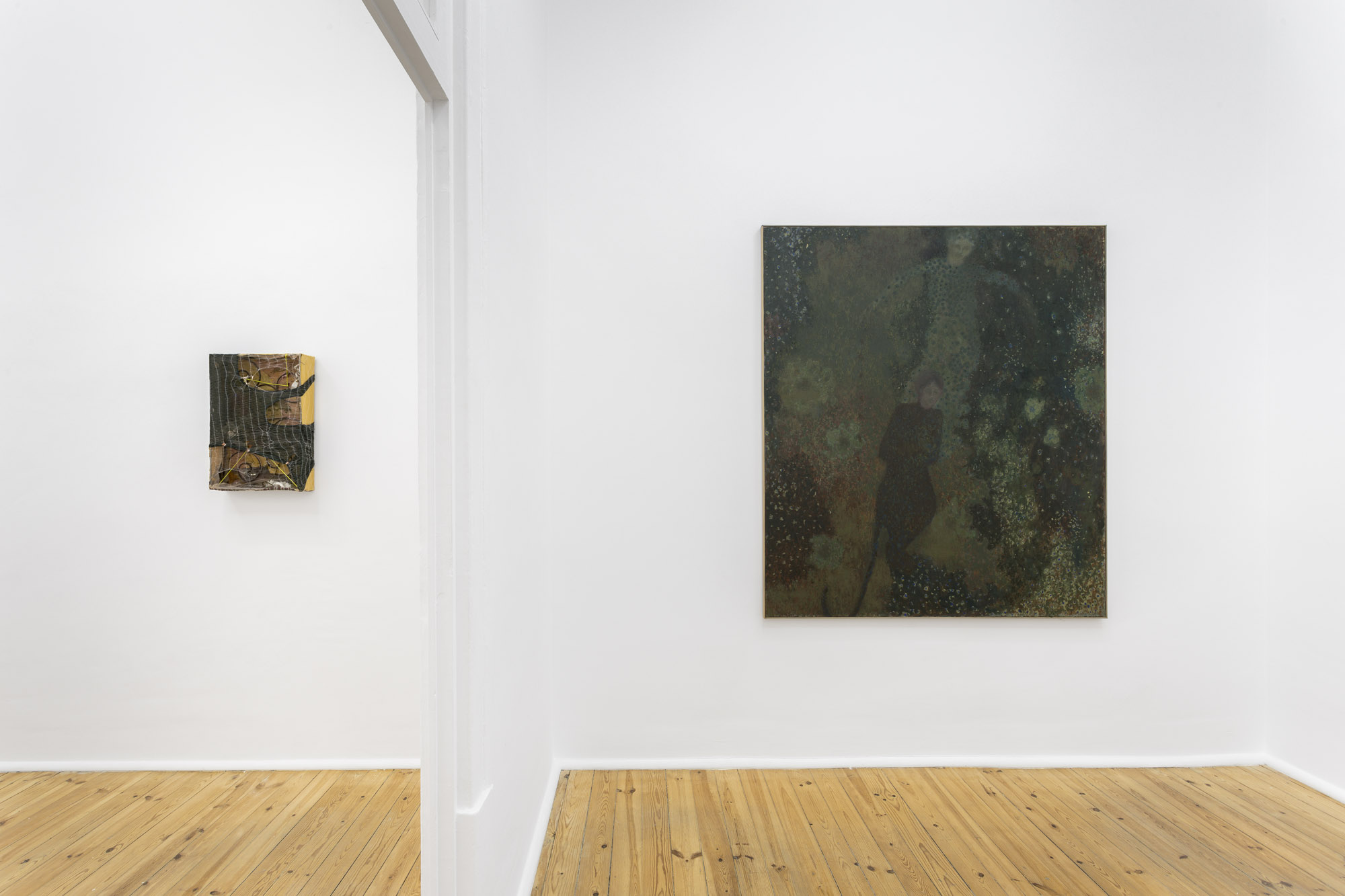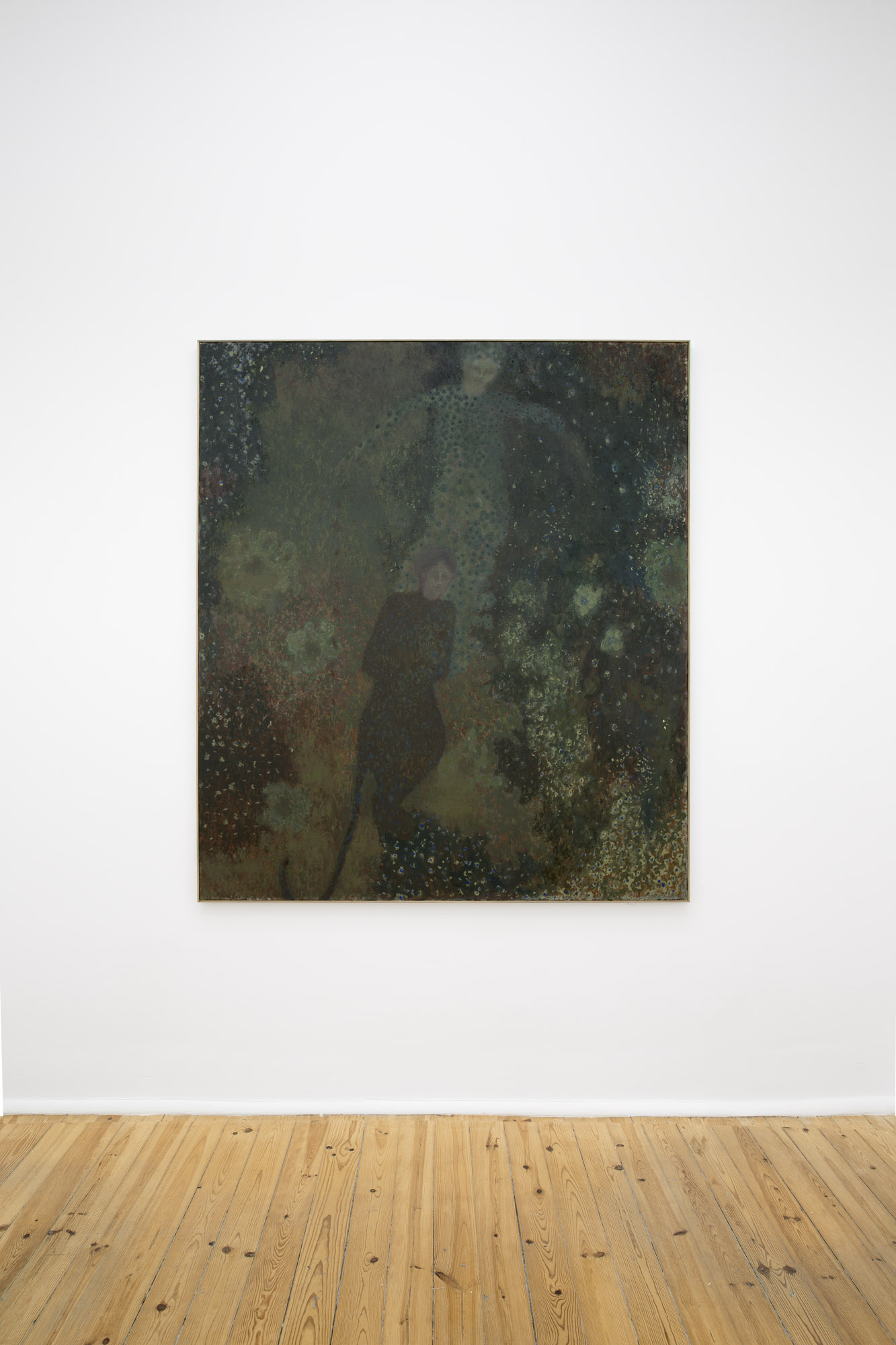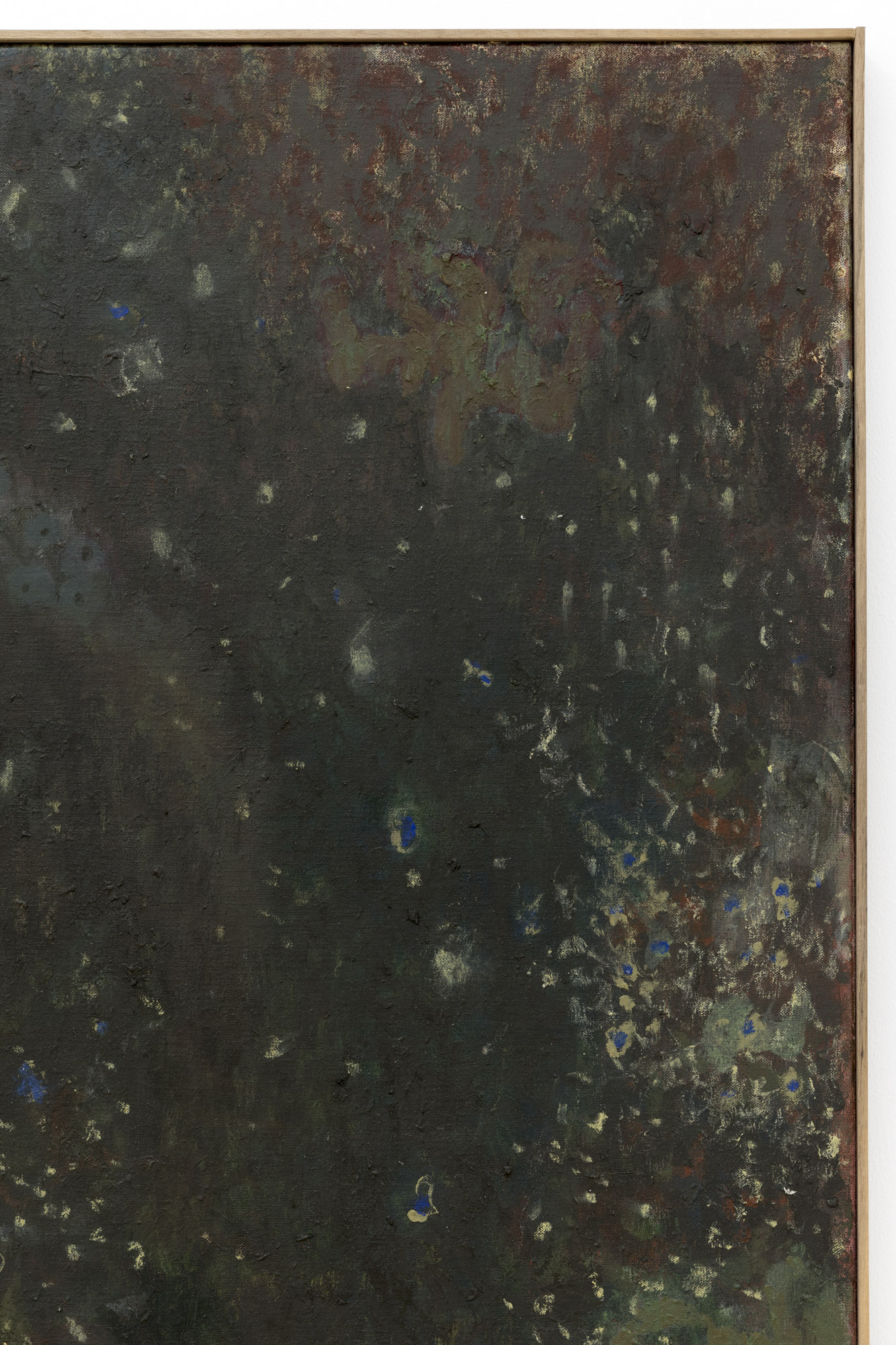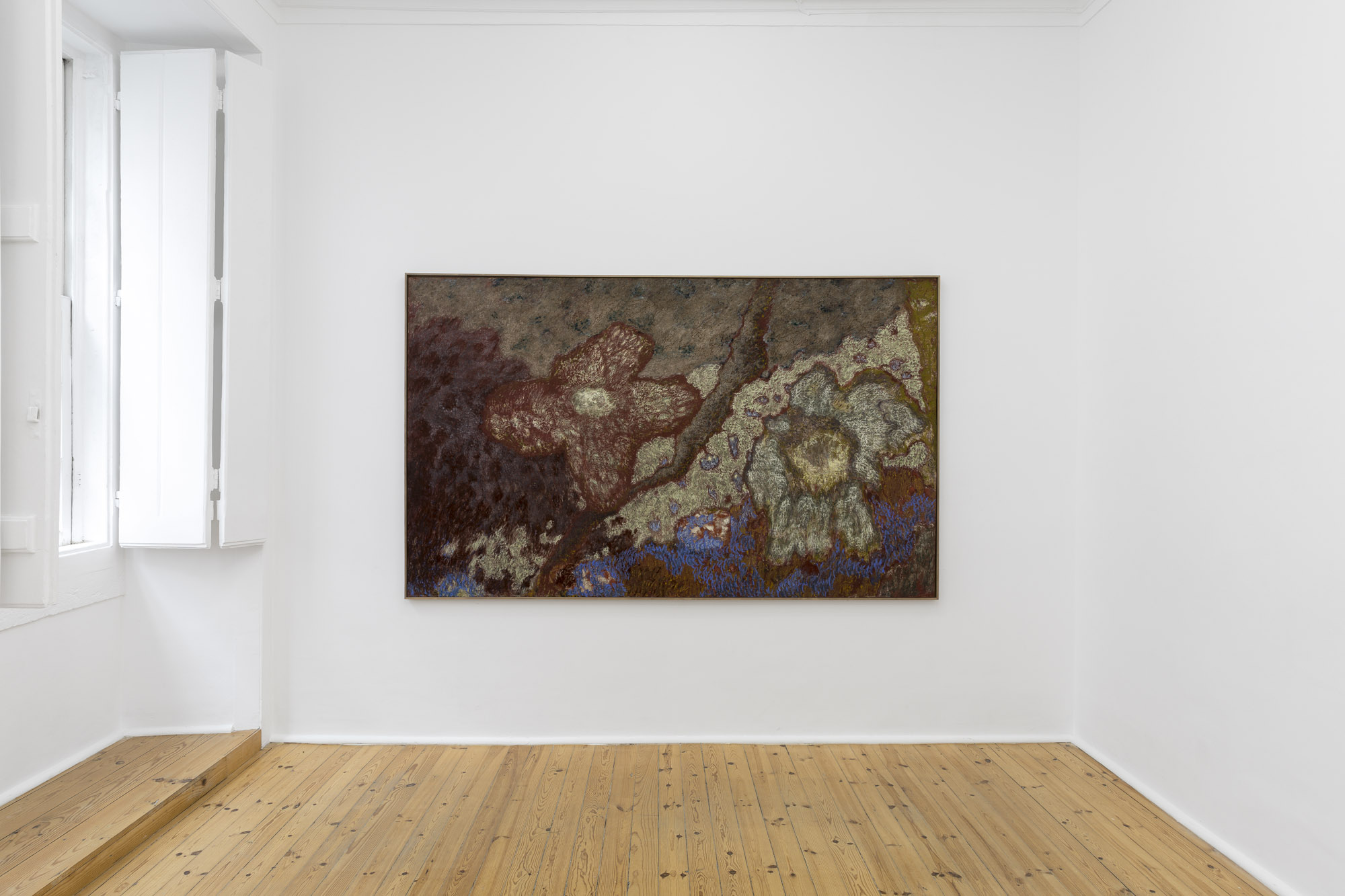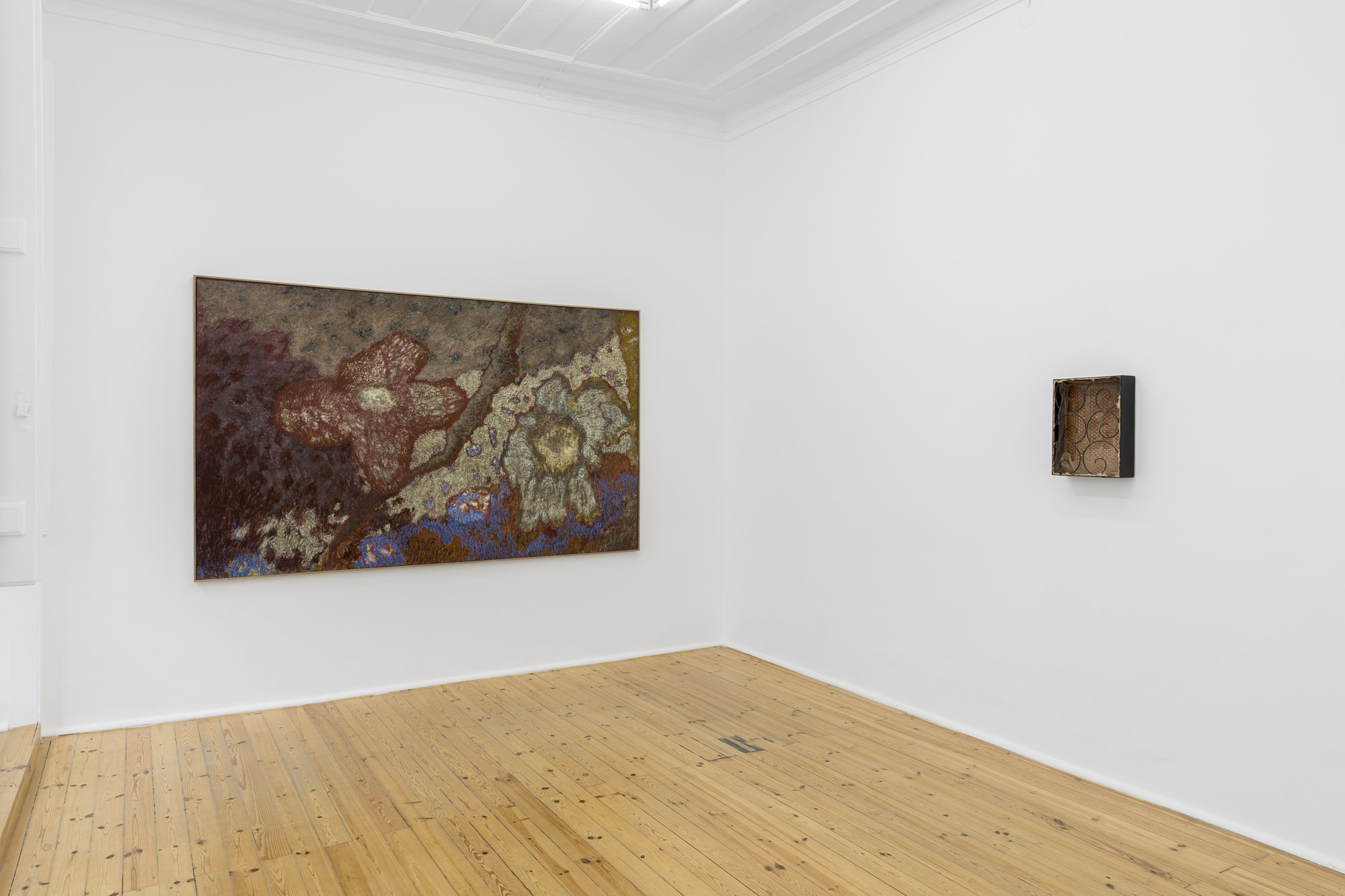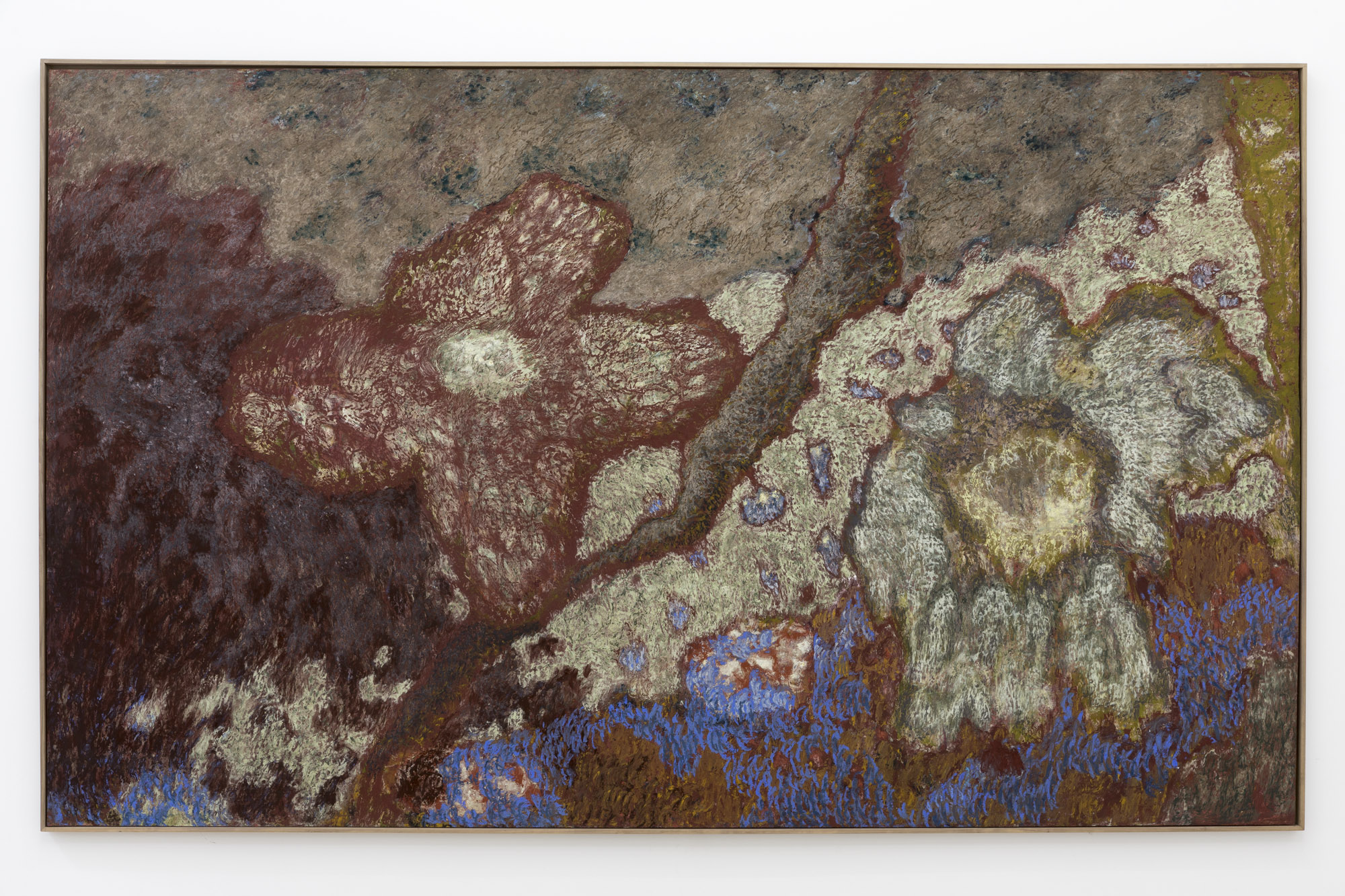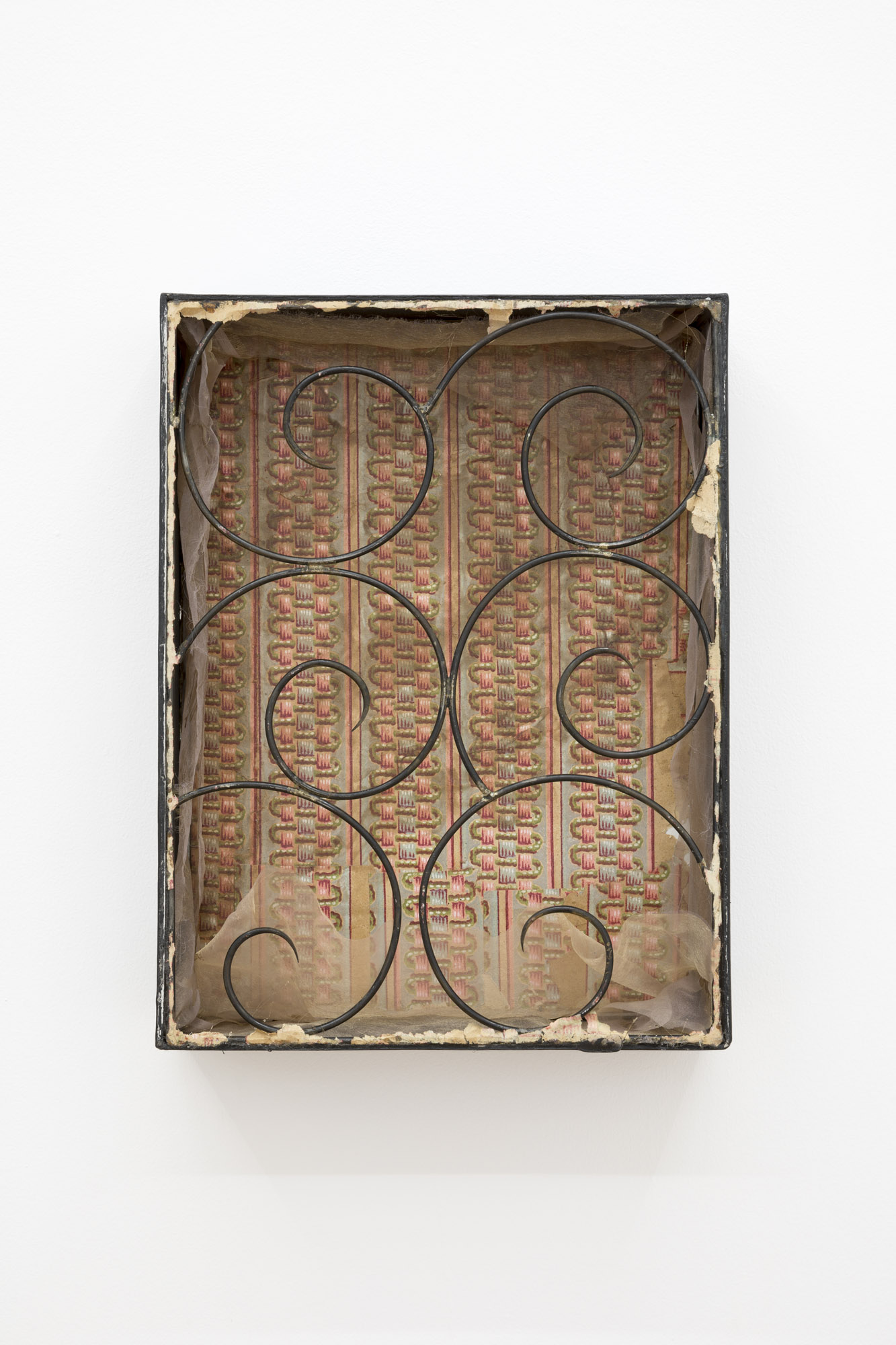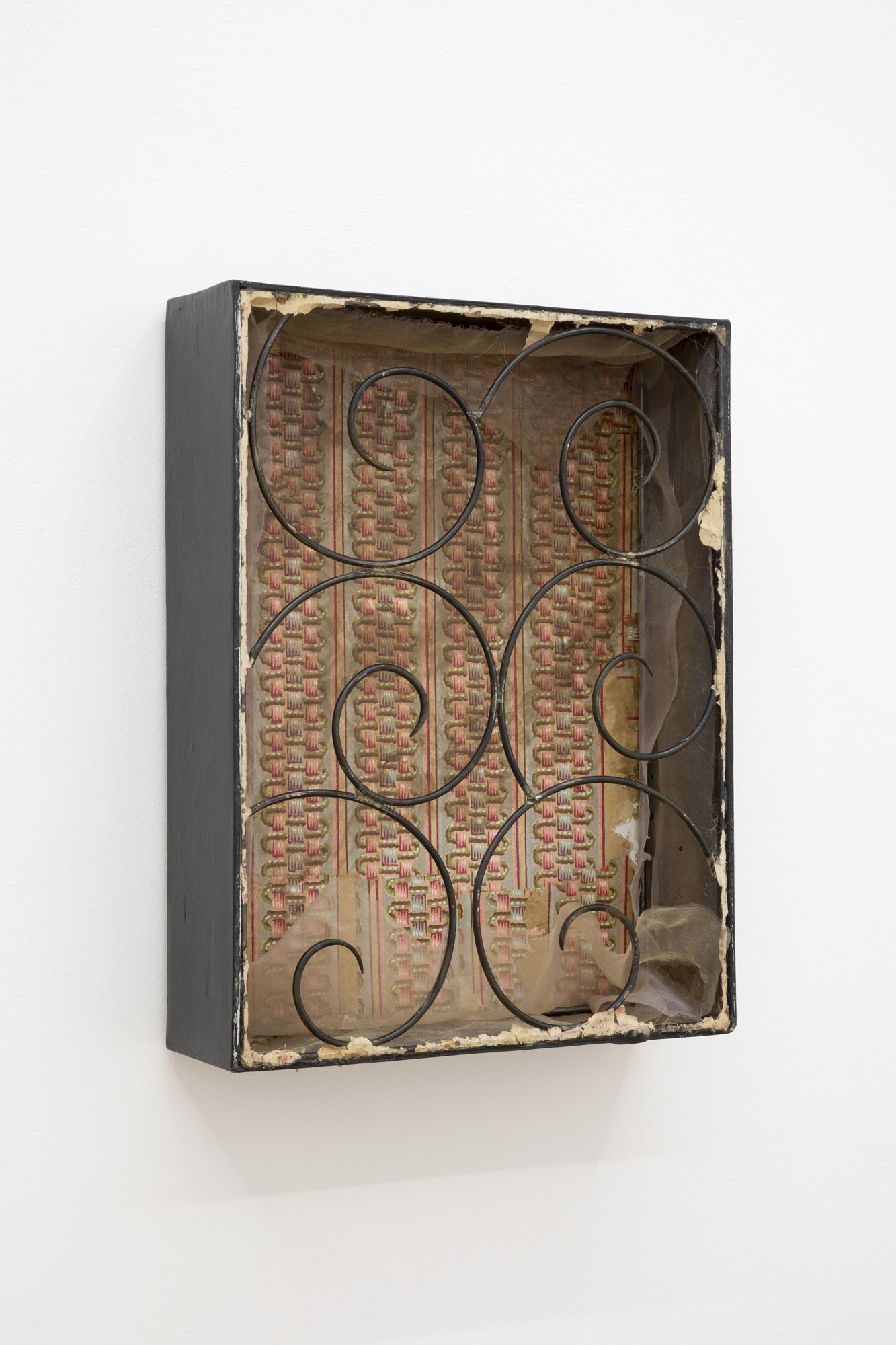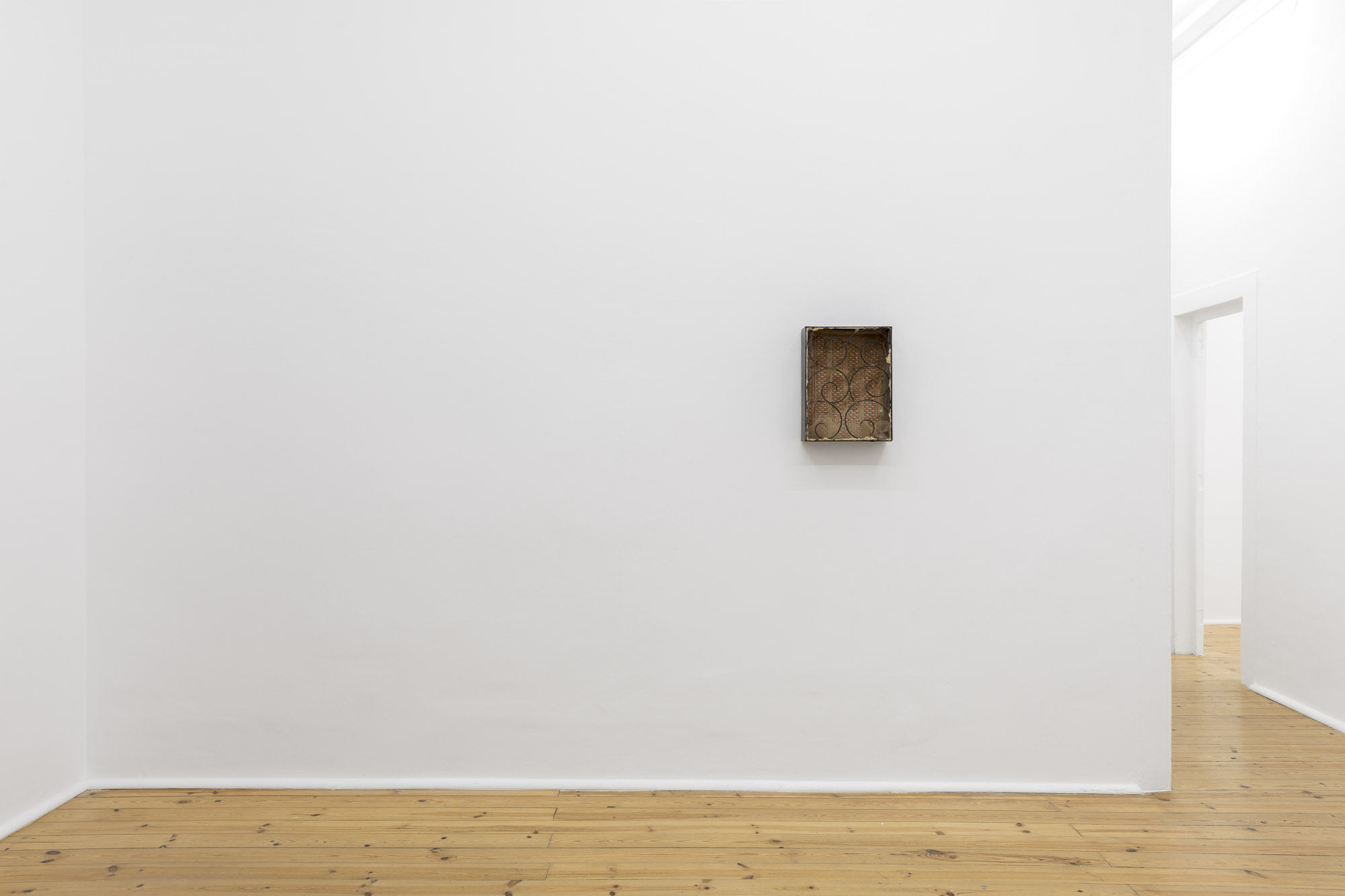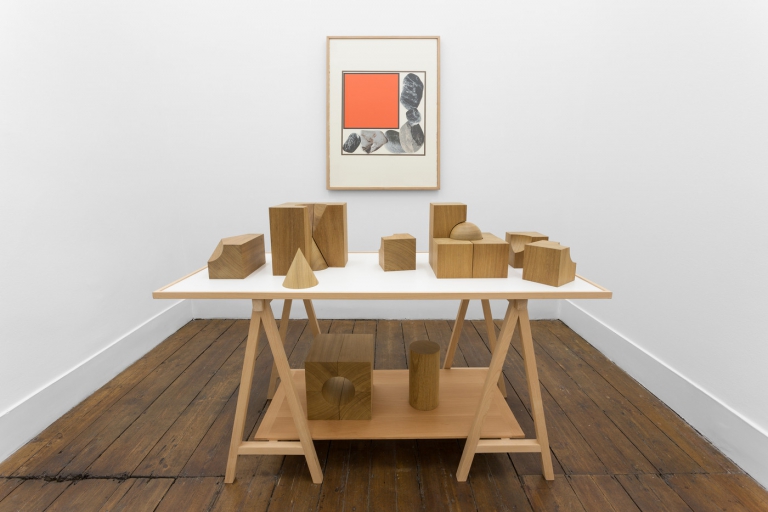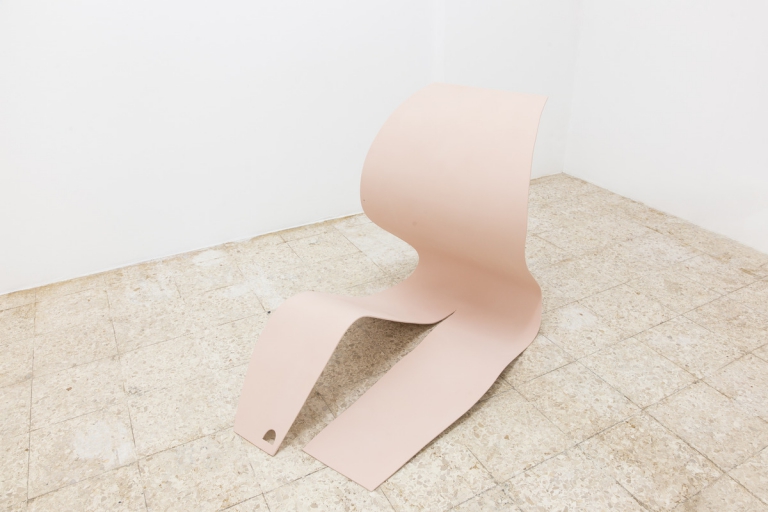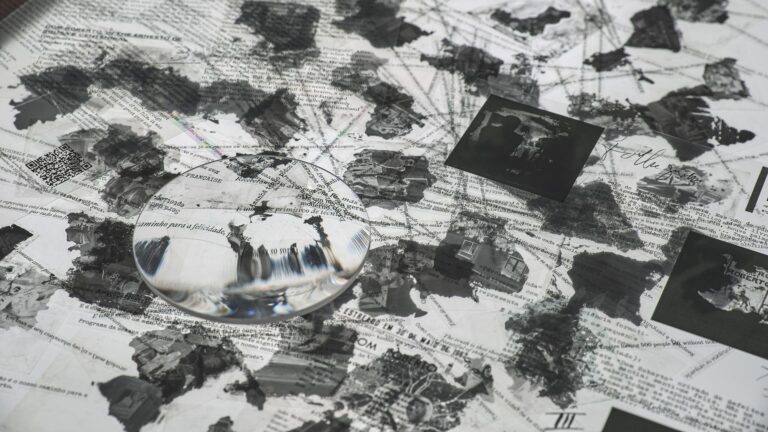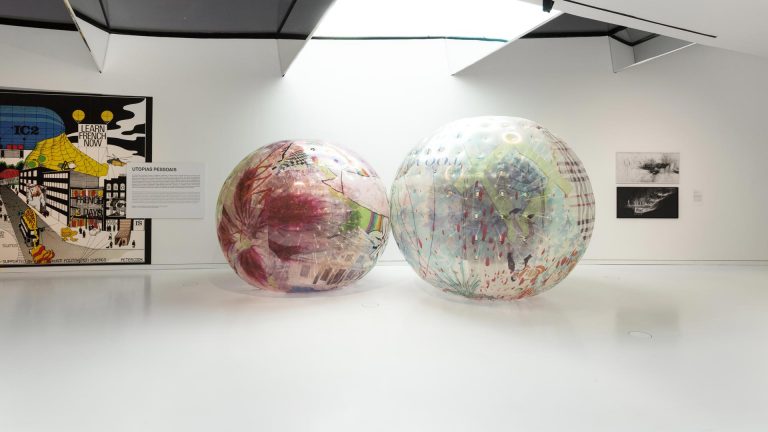Artists: Oliver Bak, Clémence de La Tour du Pin Tomas Leth, Nancy Youdelman
Exhibition title: Doll-Soul
Venue: ADZ Gallery, Lisbon, Portugal
Date: February 2 – March 4, 2023
Photography: all images copyright and courtesy of the artists and ADZ Gallery, Lisbon
ADZ is delighted to announce the opening of ‘Doll-Soul’; A group exhibition featuring numerous paintings and sculptures by Oliver Bak, Tomas Leth, Clémence de La Tour du Pin, and Nancy Youdel- man, with a supporting essay ‘On Dolls’ by Rainer Maria Rilke; a thoughtful and stimulating enquiry into mankind’s relationship with simulacra.
Faced with the stolid and unchanging dolls of childhood, have we not wondered again and again, as we might of certain students, what was to become of them? Are these the adult versions of those doll childhoods cosseted by genuine and feigned emotions? Are these their fruits, reflected fleetingly into this atmosphere so grossly saturated with humanity? False fruits whose seed could never come to rest, almost washed away sometimes by tears, at other times exposed to the passionate aridity of rage or the desolation of neglect; planted into the most compliant depths of an utterly ven-turesome tenderness, to be torn out again time after time and hurled into a corner with angular broken things, spurned, despised, done with; just where it should really be given to them, smearing them-selves with it like spoilt children, impenetrable and, in their ad-vanced state of inevitable corpulence, unable at any point to absorb even a single drop of water; without any judgement of their own, yielding to any rag and yet, once appropriated, taking possession of this in a particular way, negligently, smugly, impurely; awake only for an instant as the eyes flicked open, then off to sleep again with disproportionate and insensitive eyes open, scarcely able, it would seem, to tell whether it is the mechanical eyelid which weighs on them or that other object, the air; inert; dragged along through the changing emotions of the day, lying for a while in each; made into a confidant, an accomplice, like a dog, but not as receptive and forgetful as a dog, and a burden in both roles; initiated into the first nameless experiences of their owners, lying about in their earliest uncanny spells of loneliness as if in empty rooms and all that was needed was to exploit this new spaciousness crudely with all their limbs; dragged as companions into cots, abducted into the deep furrows of illnesses, appearing in dreams, entangled in the disasters of feverish nights—such was the nature of those dolls. For they themselves took no active part in these events, they just lay at the edge of childhood sleep, filled with nothing more than rudimentary thoughts of falling, letting themselves be dreamed, just as they were accustomed to being inexhaustibly lived during the day by alien forces.
When you consider how grateful things are normally for tender-ness, how such treatment breathes new life into them, indeed how (provided only they are loved) even the roughest usage affects them like a devouring caress which admittedly makes them droop but also seems to endow them with a firmness of spirit which possesses them all the more strongly as their body yields (this almost makes them in a higher sense mortal and able to share with us that melancholy which is our greatest resource) . . . When you think of this and recall the delicate beauty acquired by certain things wholly and intimately integrated into human life: I do not mean you have to walk through the halls of the Armeria in Madrid and marvel at the suits of armor, the helmets, daggers and two-handed swords in which the pure skill of the armourer’s craft has been transcended by a Something added to these weapons by proud and passionate use; I am not thinking of the smiles and misery secreted in jewels which have been often worn; I do not dare to think of a certain pearl in which the obscurity of its underwater world was heightened to such spiritual significance that the whole enigma of fate seemed to lament in this innocent bead; I shall pass over the intimate and moving quality, the lonely pensiveness of many things which, as I went by, affected me deeply because of the pleasing way they have settled into the human sphere. I should like to mention quickly only a few of the perfectly simple things—a needlework stand, a spinning wheel, a domestic a bible, not to speak of the mighty will of a hammer, a violin’s devotion, the good-natured eagerness of horn-rimmed spectacles. Indeed, just take those cards used so often in games of Patience and throw them on the table; instantly it becomes a focal point for sad hopes which have turned out unexpectedly.
If we became aware of all this and found in the same moment one of our dolls—pulled out from under a heap of more companionable things—it would almost enrage us by its horrible dense forgetfulness, and the hatred which must always have been an unconscious part of our connection with it would burst to the surface. It would lie before us, unmasked as the gruesome foreign body on which we squandered our purest affection, as the superficially painted watery corpse borne up and carried along on the floodwaters of our tenderness until we were on dry land again and abandoned it in some thicket.
I know, I know, we had to have things like that with which we could do as we liked. The simplest loving relationship was beyond our conception. With people who were something it was impossible for us to live and interact, the most we could do was merge into them, lose ourselves in them. But with the doll we had to assert ourselves, because if we surrendered to it there was nobody there. It made no response, so we got into the habit of doing things for it, splitting our own slowly expanding nature into opposing parts and to some extent using the doll to establish distance between ourselves and the amorphous world pouring into us.
We mixed in the doll, as if in a test-tube, everything we were experiencing and could not recognise. We watched it change color there and come to the boil. That is, we invented this too. The doll was so utterly devoid of imagination that what we imagined for it was inexhaustible. For hours, for weeks on end, we must have been content to lay the first fine silk of our hearts in folds around this immobile mannequin, but I have to believe there were certain abysmally long afternoons when our twofold inspirations petered out and we suddenly sat in front of it, expecting some response.
Just then we may have had near us one of those things which are by nature ugly and mean, and therefore full of their own opinions: the indestructible head of a Punch, a partly broken horse or some-thing that made a noise and could hardly wait to deafen us and the whole room with its din. But even if this were not so, even if there was nothing there to distract our thoughts, even if that idle creature kept on giving itself airs stolidly and mutely like some peasant Danaë knowing nothing but the ceaseless golden shower of our invention, I wish I could remember if we then rebelled, started up in a rage and gave the monster to understand our patience was at an end…whether we did not then, trembling with fury, confront it and demand to be told, point by point, what it needed our affection for, what had become of all these riches.
It remained silent then, not because it felt superior, but silent because this was its established form of evasion and because it was made of useless and absolutely unresponsive material. It was silent, and the idea did not even occur to it that this silence must confer considerable importance on it in a world where destiny and indeed God himself have become famous mainly by not speaking to us.
At a time when everyone was concerned to give us prompt and reassuring answers, the doll was the first to make us aware of that silence larger than life which later breathed on us again and again out of space whenever we came at any point to the border of our existence. Sitting opposite the doll as it stared at us, we experienced for the first time (or am I mistaken?) that hollowness in our feelings, that heart-pause which could spell death, did not the whole gentle continuum of nature lift one like a lifeless body over the abyss.
Are we not strange creatures, letting ourselves be guided to direct our earliest inclinations to where there is no hope of response? So that mingled into the taste of that utterly unforced tenderness was the bitterness of knowing it was wasted. Who knows whether later in life many a person does not draw from such memories the suspicion that he cannot be loved? Whether the doll does not go on exerting its unholy influence on some person or other so that he goes in pursuit of nebulous satisfactions purely as a reaction against the discontent with which the doll has corrupted his spirit? I remember seeing an old doll in the hands of children at a manor house on a remote Russian estate. It had come down through the generations, and all the members of the family bore a resemblance to this doll.
A poet could fall under the domination of a marionette, because the marionette has only imagination. The doll has none, and is exactly that much less than a thing as the marionette is more. But this being less than a thing, in all its inevitability, contains the secret of the doll’s predominance. The child must grow used to things, it must accept them; each thing has its pride. The things tolerate the doll, none loves it. It is possible to believe the table actually throws it off: hardly have you looked away when it is on the floor again.
Beginners in the world as we were, we could hardly feel superior to anything except such an incomplete object which had been laid beside us just as they lay a fragment of crockery in aquariums for the creatures to use as a mark and measure of their surroundings. We took our bearings from the doll. It was by nature lower, so we could flow off imperceptibly towards it, converge in it and, even if somewhat dimly, make out our new surroundings in it. But we soon realised we could not make it into a thing or a person, and in such moments it became a stranger to us, and we could no longer recognise all the confidences we had heaped over it and into it.
That we did not then make you into an idol, you brat, and perish from fear of you, was because—I must tell you—it was not you we had in mind. We were thinking of something quite different, invisible, something we held at arm’s length from you and from ourselves, furtively, with vague anticipation, something for which both of us were in a way only pretexts. We were thinking of a soul, the soul of the doll.
Great fiery soul of the rocking-horse, you soul rocking the boy’s heart on a sea of induced waves, churning the playroom air into a tumult as if over the renowned battlefields of the earth, you proud, credible, almost visible soul. How you shook the walls, the window-frames and familiar horizons into movement as if future storms were already tearing at these provisional structures which could seem so invincible in the long, dreary afternoons. Ah, rock-ing-horse-soul, how you carried one off and away into some inexorably heroic sphere, there to perish in heat and glory with one’s hair in the most frightful disorder. While this was going on, you were lying nearby, you doll, and had not even enough innocence to comprehend that your St George was rocking the beast of your insensitivity under him, that dragon which transformed the flood tide of our feelings into a lump inside you, into a perfidious and indifferent permanence.
Or you, confident soul of the tramway, you could almost gain the upper hand as we travelled round the room with merely the faintest belief in our tram nature: You souls of all those lonely games and adventures—naïvely obliging soul of the ball, soul in the smell of dominoes, the inexhaustible soul of the picture-book, soul of the school-satchel (one was a little mistrustful of this one because it often had open dealings with grown-ups), deaf soul in the bell of the splendid little tin trumpet—how genial you all were and almost tangible.
Only of you, doll-soul, could one never quite say where you really were; whether you were at that moment in us or in that drowsy creature to whom we were constantly assigning you. What is certain is that we often relied on each other, and in the end you were in neither of us and were trodden underfoot.
When were you ever really present? On the morning of a birth-day perhaps, when a new doll lay there, almost drawing body heat from the lingering warmth of the cake beside it? Or on Christmas Eve, when the dolls we had had up to now sensed the overwhelming proximity of the future ones through the door which had been closed to us for days? Or, more probably, when a doll suddenly fell and lost its looks—there was a split-second then when you seemed to be taken by surprise. And I feel sure you were able to originate a vague pain like the onset of toothache when one does not quite know where it is going to be, as when Anna, a favorite doll, went missing, not to be found again in all eternity, gone. But fundamentally we were so busy keeping you in existence that we had no time to grasp what you were.
I have no way of knowing what it is like when a little girl dies and will not let them take away one of her dolls (perhaps one quite neglected up to then), not even at the very end, so that the poor thing, withered and wilting in the burning heat of the child’s feverish hand, is carried as a companion into that ultimate and momentous region. Does a tiny portion of soul accumulate in it then, curious to see a real soul?
You doll-soul, not made by God, you soul, begged as a whim by some impetuous elf, you thing-soul exhaled laboriously by an idol and kept in being by us all, partly from anxiety and partly out of magnanimity, you soul from which nobody can completely detach himself, you soul never actually worn by anyone but always kept in storage, protected by all manner of old-fashioned fragrances (like furs in summer)—look, now the moths have got into you. You have been left untouched too long. Now you are shaken by a hand both cautious and bold—look, look, all the little moths are fluttering out of you, indescribably mortal, already beginning to take their leave at the very moment of birth.
So in the end we really destroyed you, doll-soul, when we thought we were cultivating you in our dolls. It must have been the larvae who were eating you from within; and this explains too why the dolls were so fat and why they could not be given more food.
Now this new timid generation escapes and flutters through our dark sensibility. Looking at these, one might describe them as tiny sighs, so faint that our ears are not attuned to hear them. They swarm and fade at the uttermost limit of our vision. For their only concern is to dwindle away. Sexless like our childhood dolls themselves, they experience no decline in their permanent sensuality, into which nothing flows and from which nothing escapes. It is as if they yearned for a beautiful flame, to throw themselves into it like moths (and then the momentary reek of their burning would fill us with limitless unfamiliar sensations). Thinking these thoughts and raising our eyes, we stand almost unnerved as we contemplate their waxen nature.
On Dolls: On the wax dolls of Lotte Pritzel (1913/14) by Rainer Maria Rilke
Doll-Soul, 2023, exhibition view, ADZ Gallery, Lisbon
Doll-Soul, 2023, exhibition view, ADZ Gallery, Lisbon
Oliver Bak, Fini’s Cats, 2023, Oil on linen, 106 x 138cm
Oliver Bak, Fini’s Cats, 2023, Oil on linen, 106 x 138cm
Doll-Soul, 2023, exhibition view, ADZ Gallery, Lisbon
Nancy Youldelman, Offering, 2013, mixed media, 10 x 53 x 16.5 cm
Nancy Youldelman, Offering, 2013, mixed media, 10 x 53 x 16.5 cm
Nancy Youldelman, Offering, 2013, mixed media, 10 x 53 x 16.5 cm
Doll-Soul, 2023, exhibition view, ADZ Gallery, Lisbon
Doll-Soul, 2023, exhibition view, ADZ Gallery, Lisbon
Nancy Youldelman, Oak Vessel, 2008, cork oak leaves, plaster, texture paste & metallic acrylic paint, 34.5 x 25.5 x 29 cm
Nancy Youldelman, Oak Vessel, 2008, cork oak leaves, plaster, texture paste & metallic acrylic paint, 34.5 x 25.5 x 29 cm
Doll-Soul, 2023, exhibition view, ADZ Gallery, Lisbon
Doll-Soul, 2023, exhibition view, ADZ Gallery, Lisbon
Doll-Soul, 2023, exhibition view, ADZ Gallery, Lisbon
Doll-Soul, 2023, exhibition view, ADZ Gallery, Lisbon
Clémence de La Tour du Pin, Windings, 2021, steel, pigment, pastel, fabric, thread, netting, bell, antique material, 56 x 37 x 10 cm
Clémence de La Tour du Pin, Windings, 2021, steel, pigment, pastel, fabric, thread, netting, bell, antique material, 56 x 37 x 10 cm
Doll-Soul, 2023, exhibition view, ADZ Gallery, Lisbon
Oliver Bak, Night Life / Protector, 2023, Oil on linen, 163 x 142cm
Oliver Bak, Night Life / Protector, 2023, Oil on linen, 163 x 142cm
Tomas Leth, Deaf Soul in the bell of the splidid little tin trumpet, 2023, Oil on paper mounted on board, 252 x 151cm
Doll-Soul, 2023, exhibition view, ADZ Gallery, Lisbon
Tomas Leth, Deaf Soul in the bell of the splidid little tin trumpet, 2023, Oil on paper mounted on board, 252 x 151cm
Clémence de La Tour du Pin, Dwindle Away, 2022, oil, wallpaper, fabric, steel, cardboard, 40 x 30 x 9 cm
Clémence de La Tour du Pin, Dwindle Away, 2022, oil, wallpaper, fabric, steel, cardboard, 40 x 30 x 9 cm
Doll-Soul, 2023, exhibition view, ADZ Gallery, Lisbon

